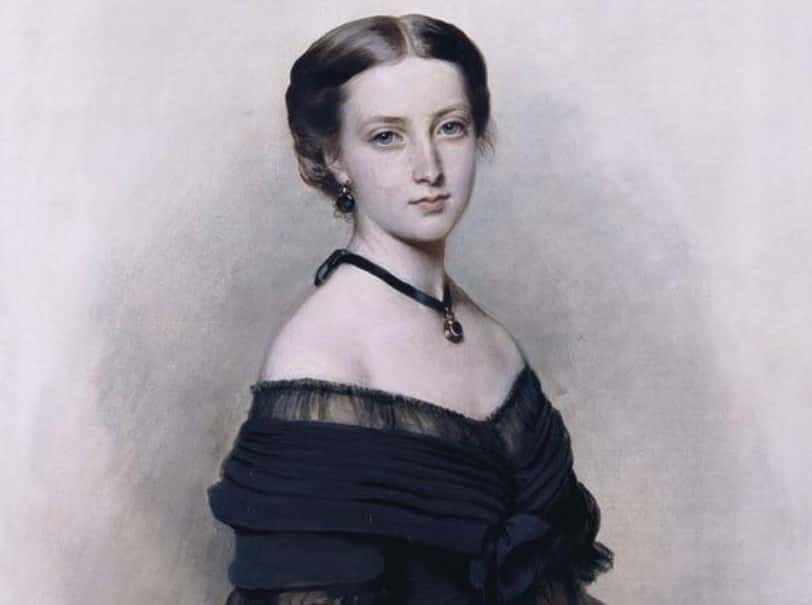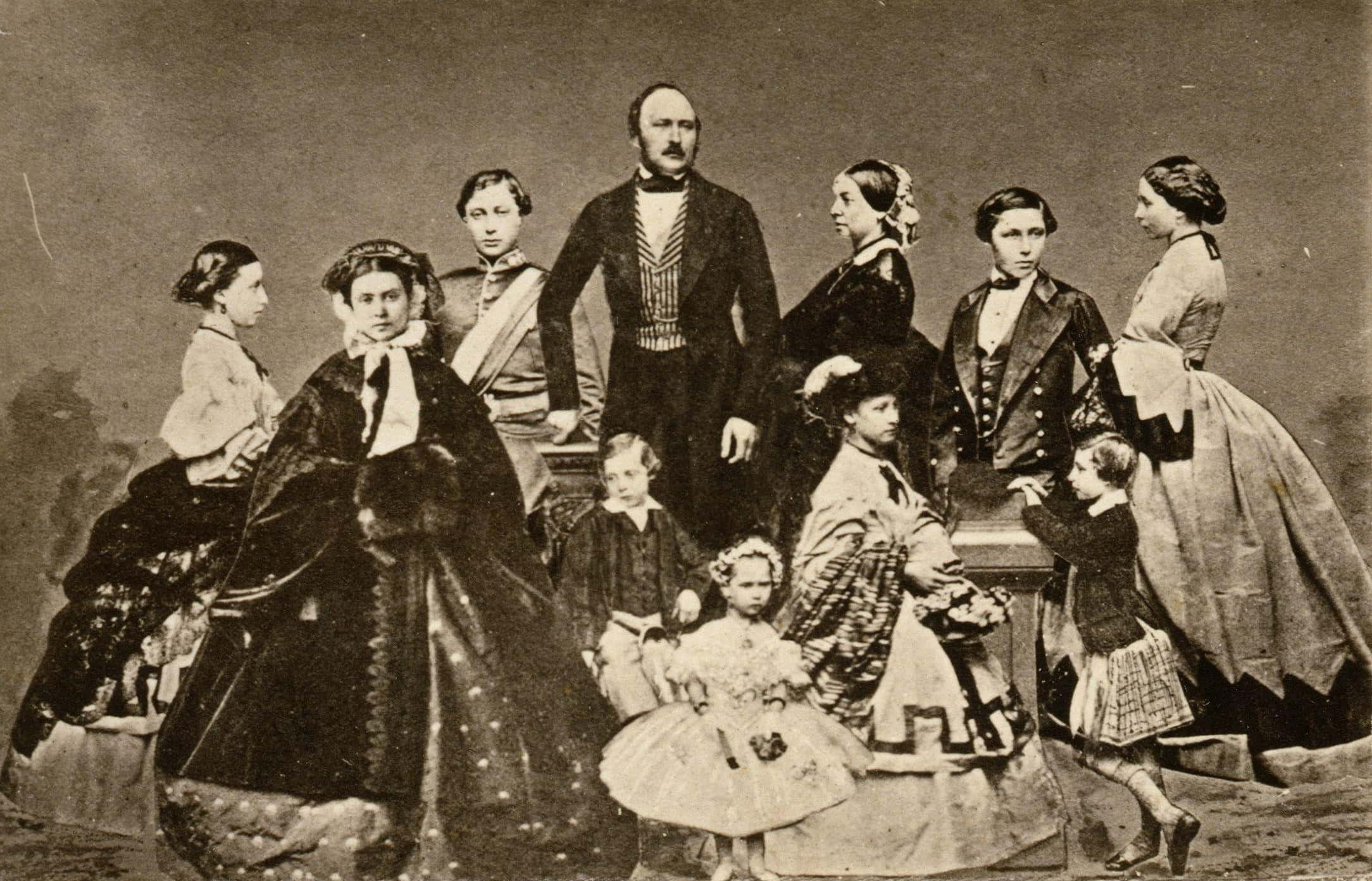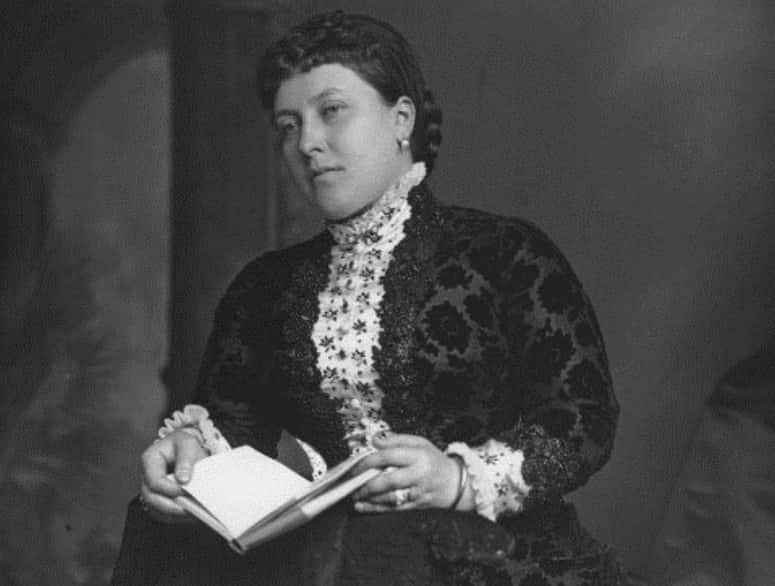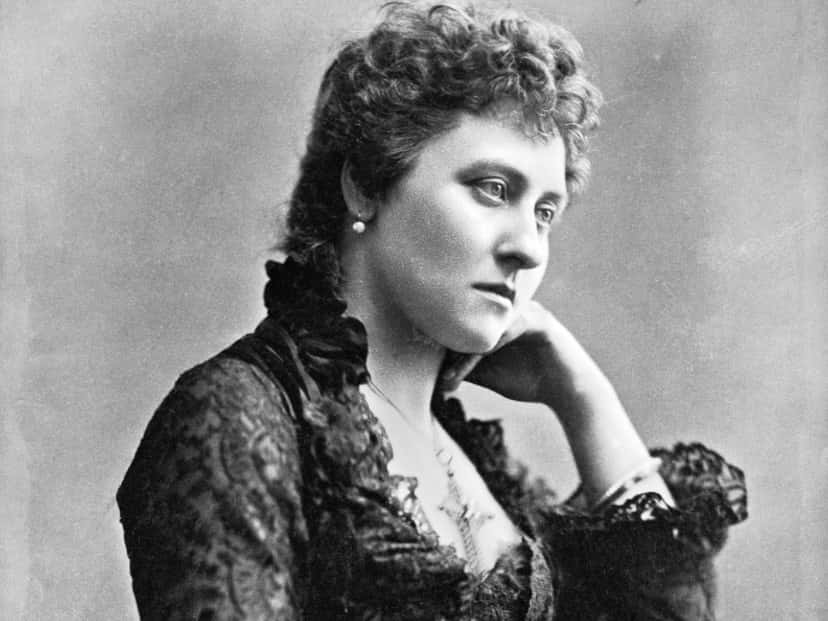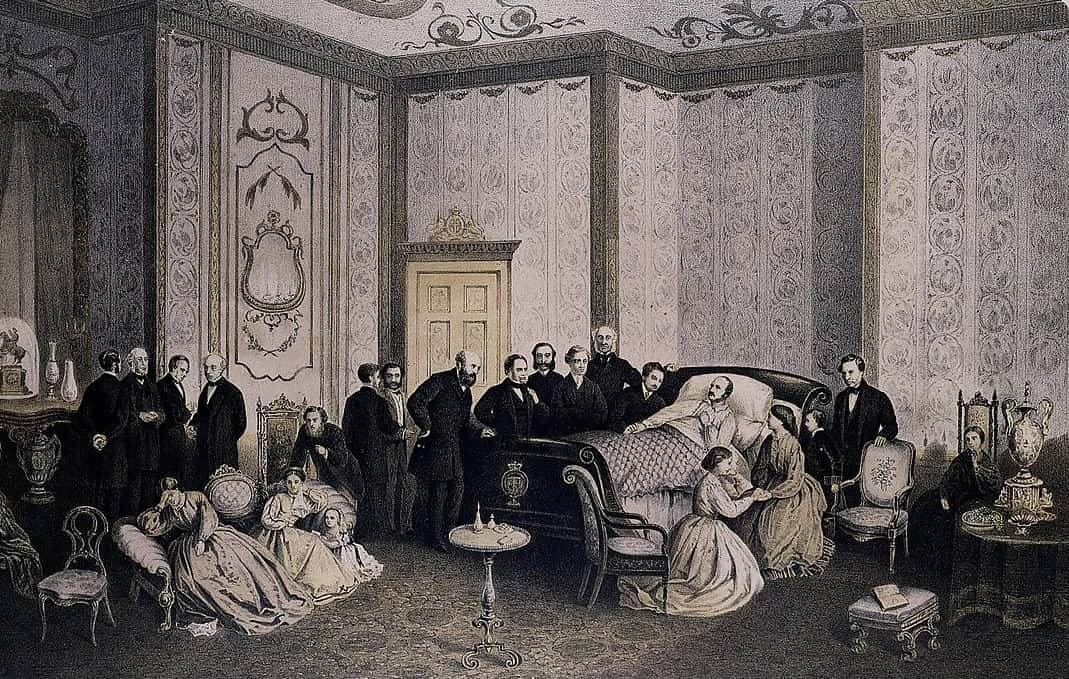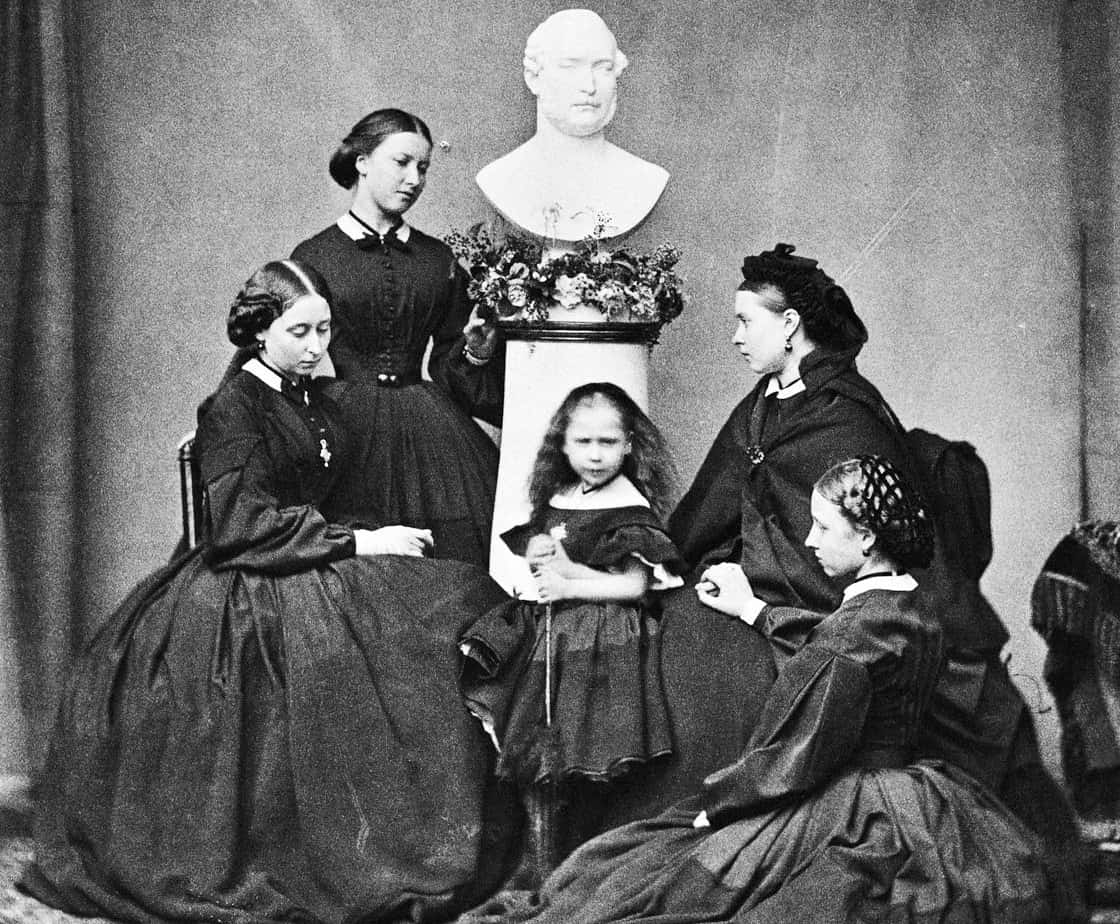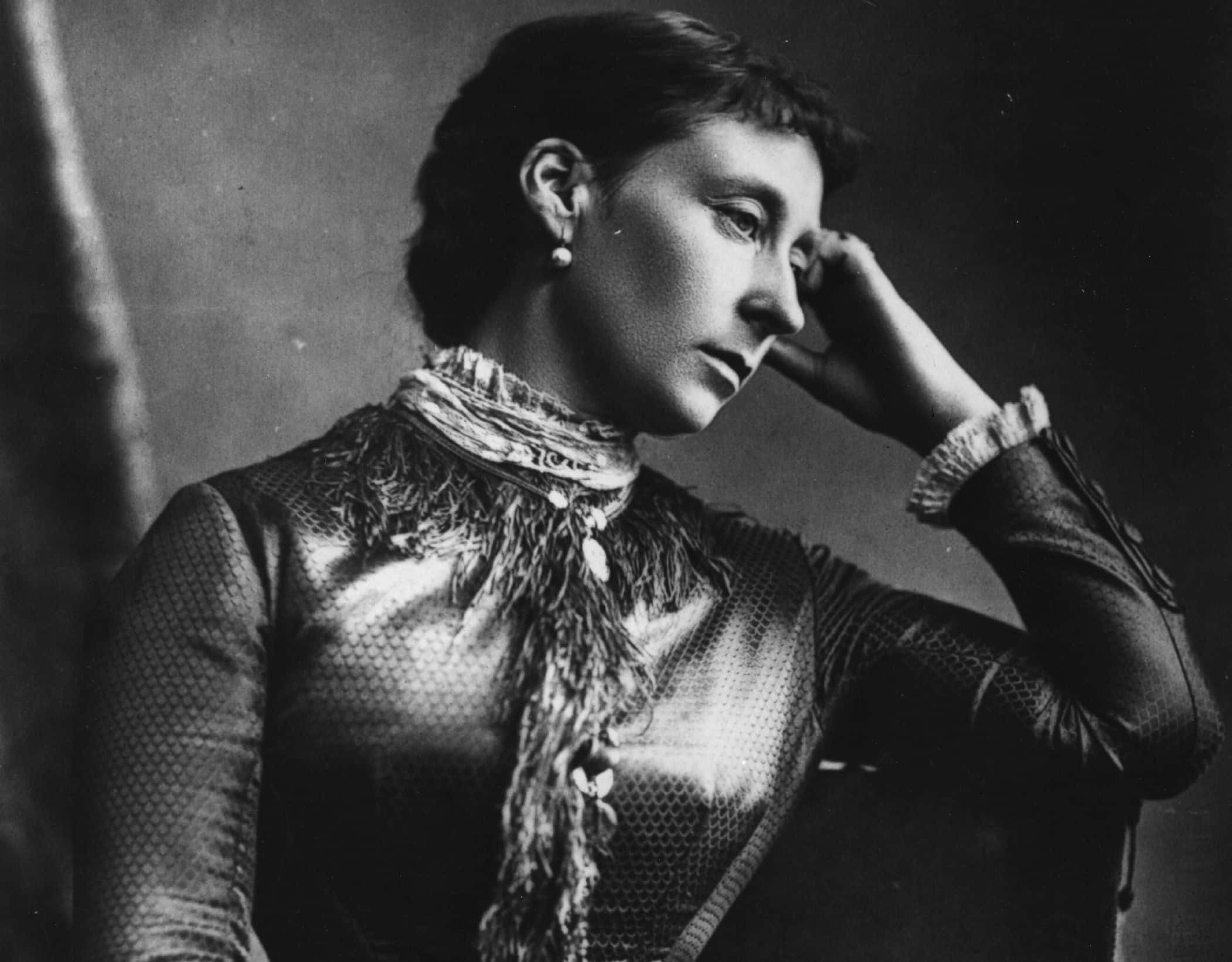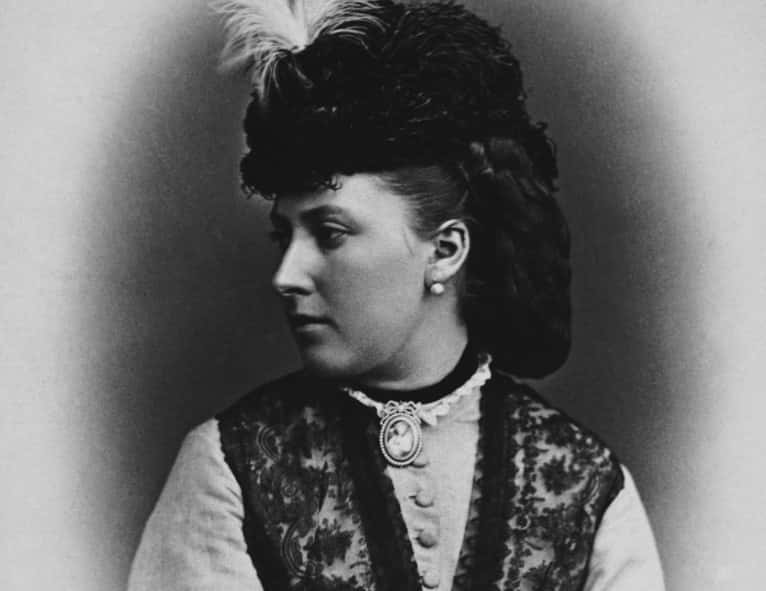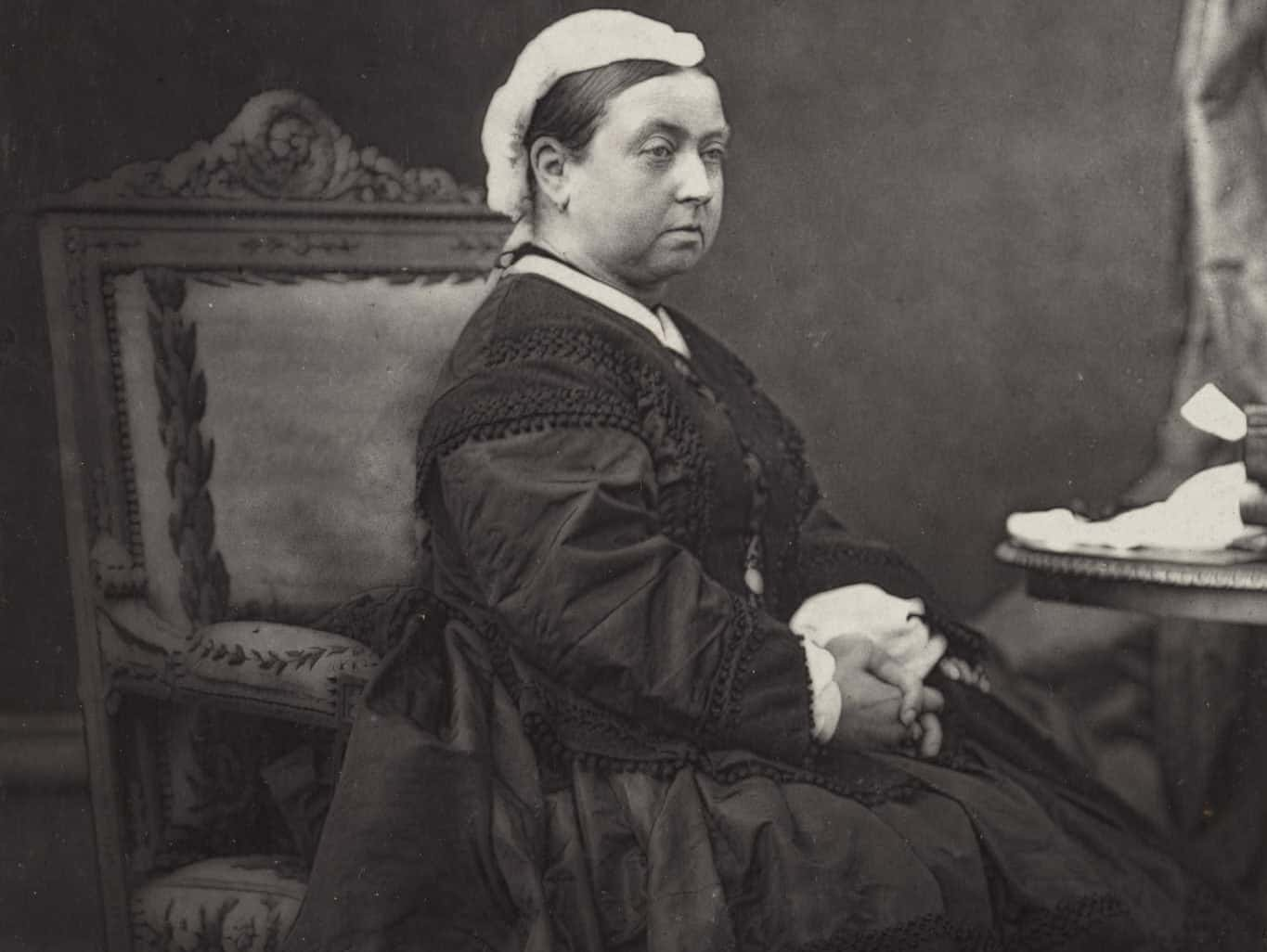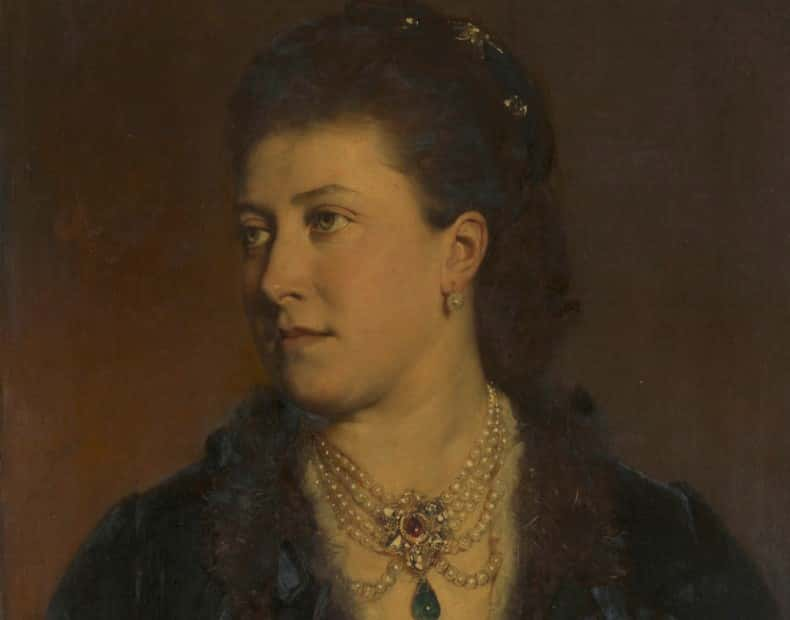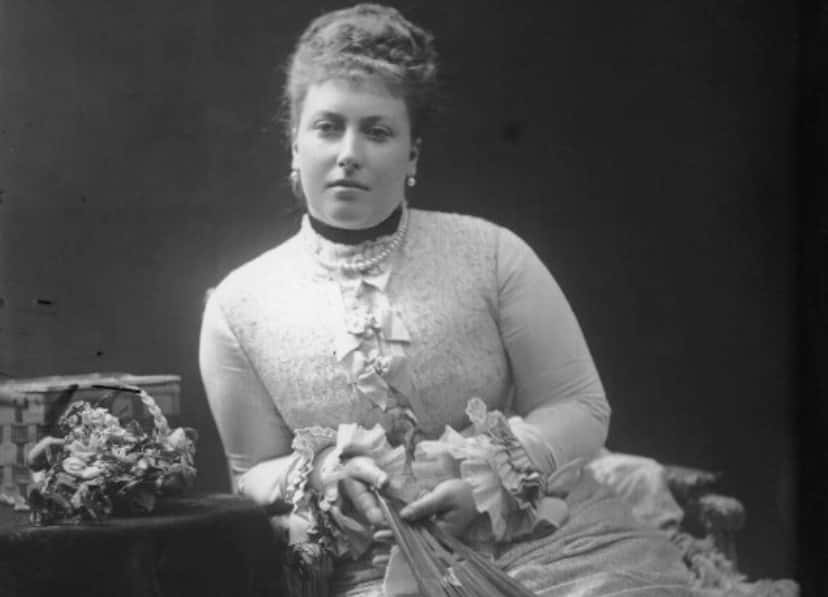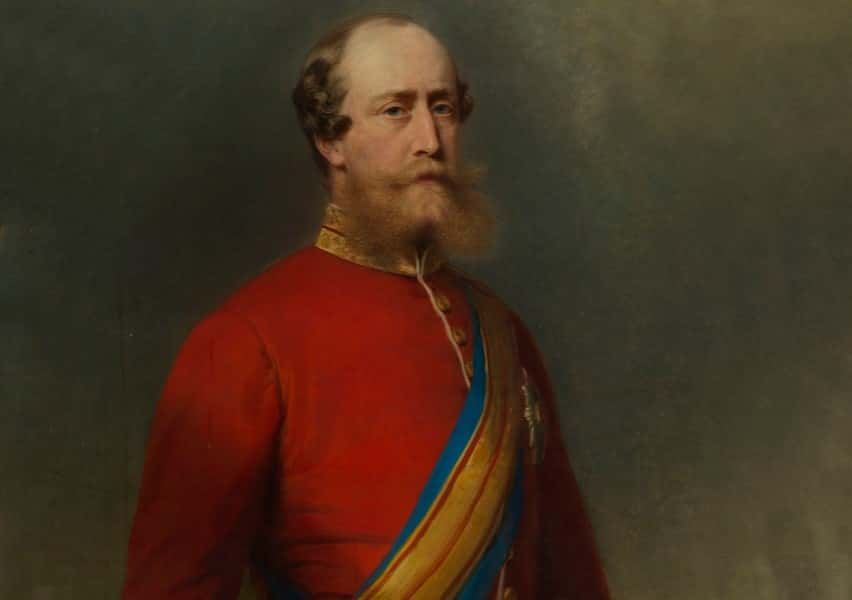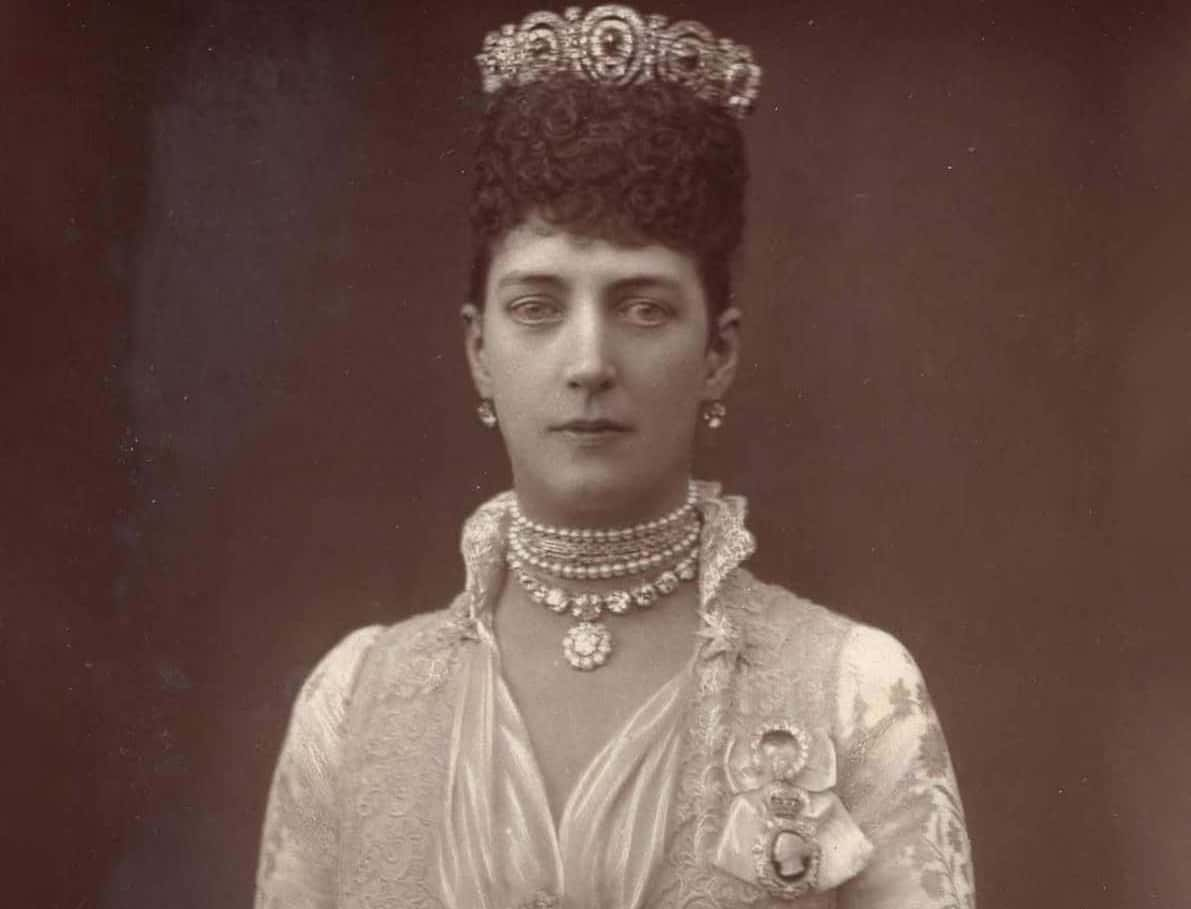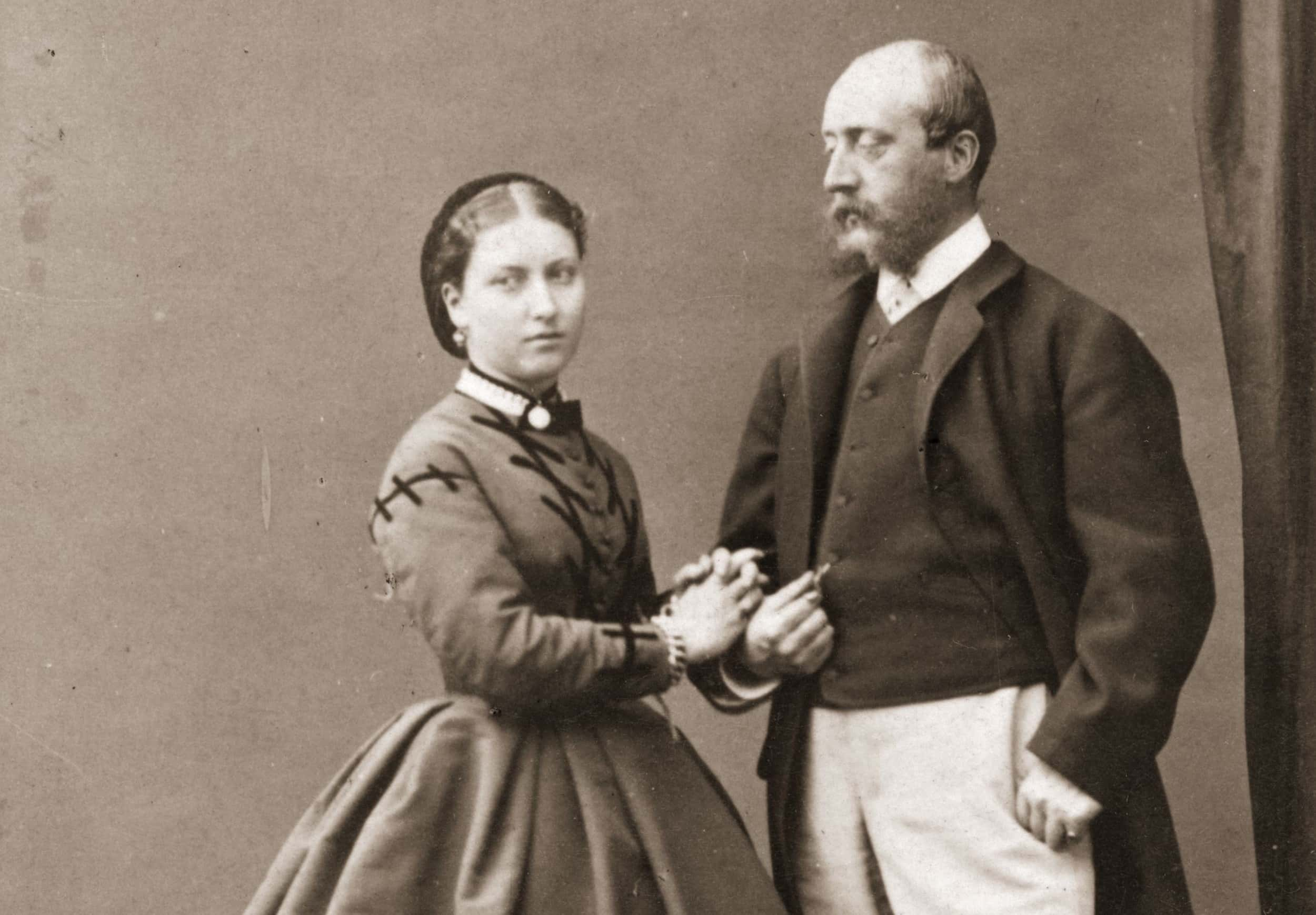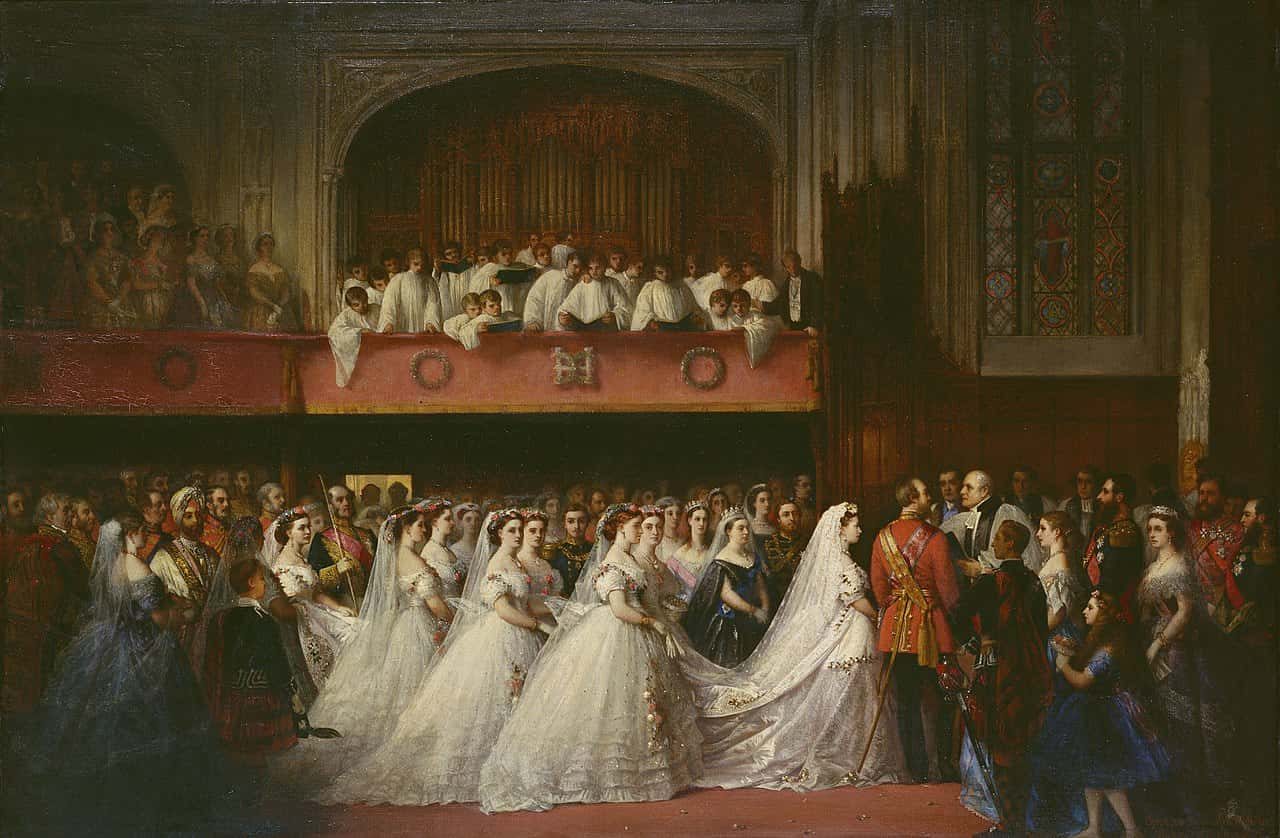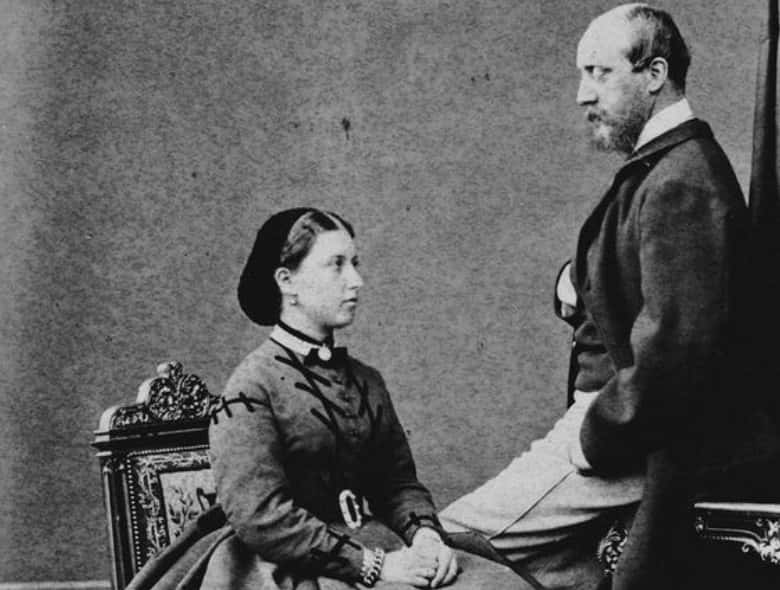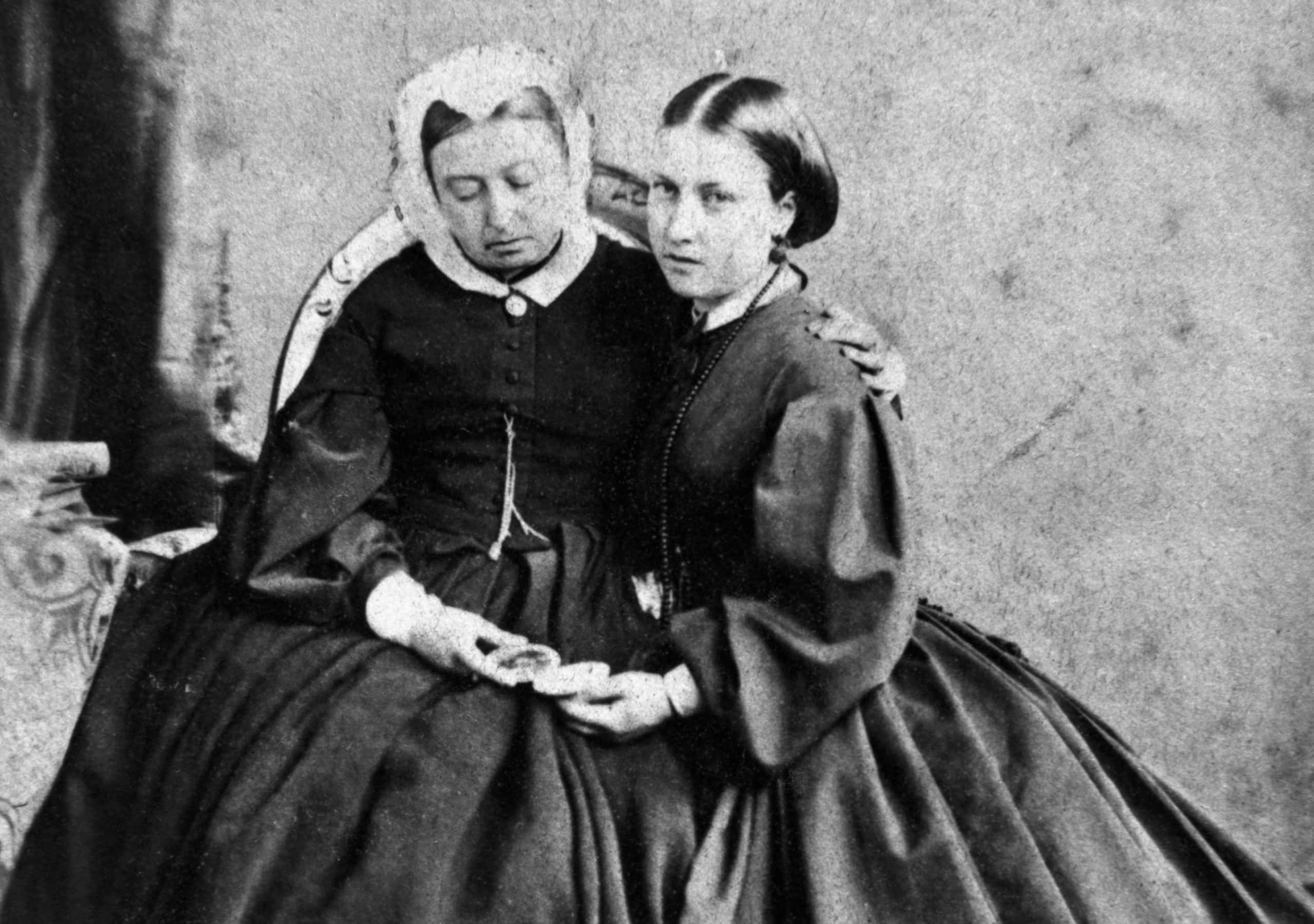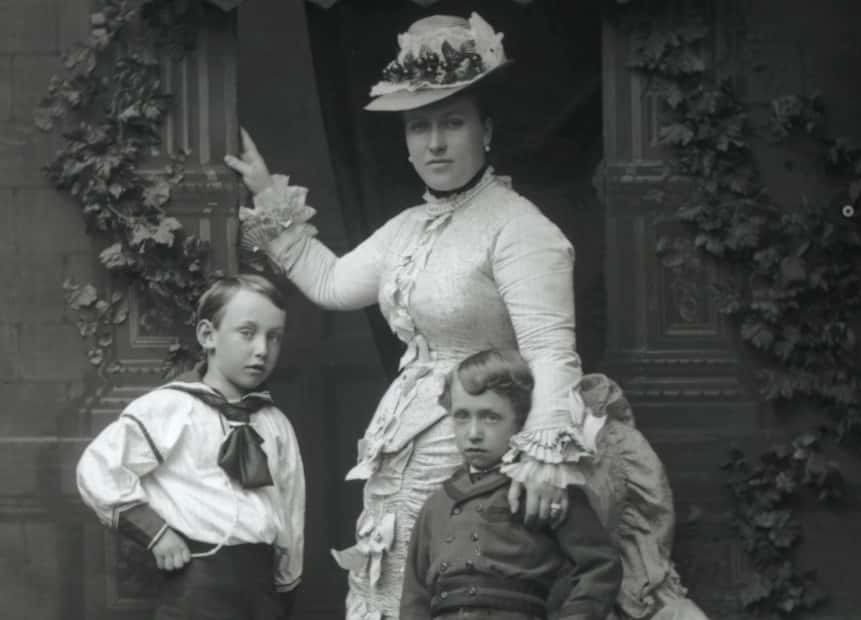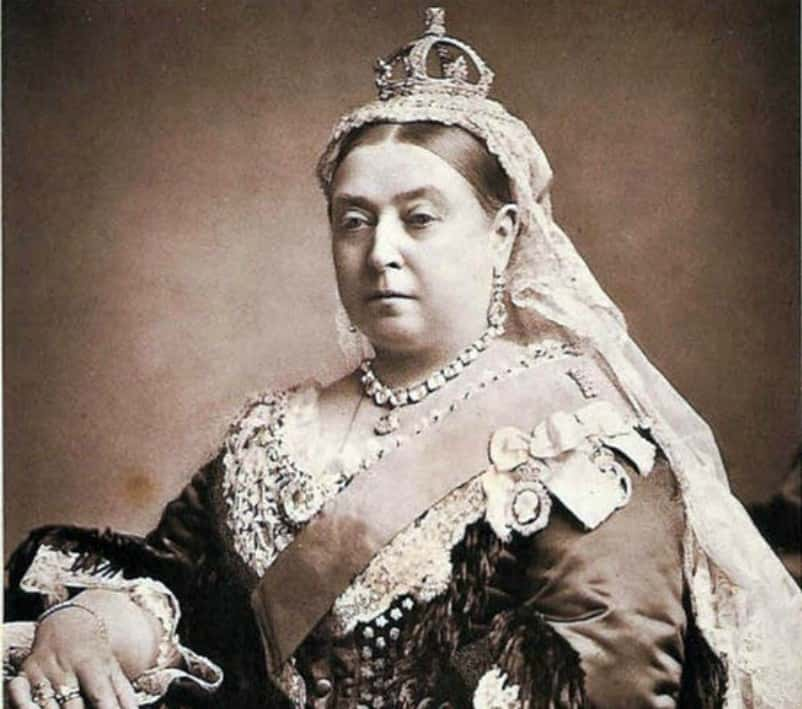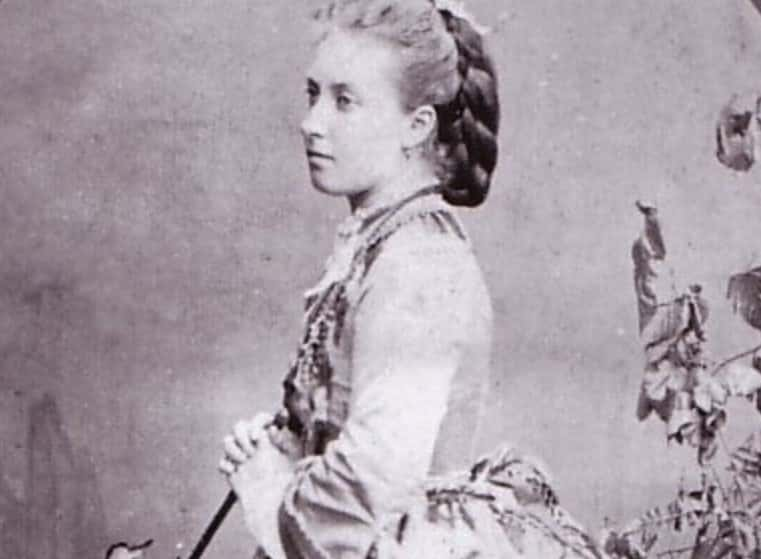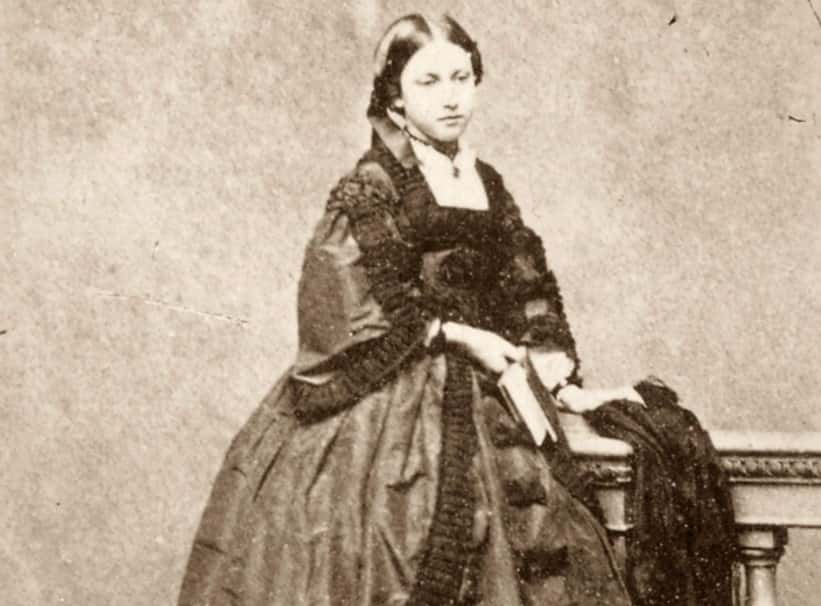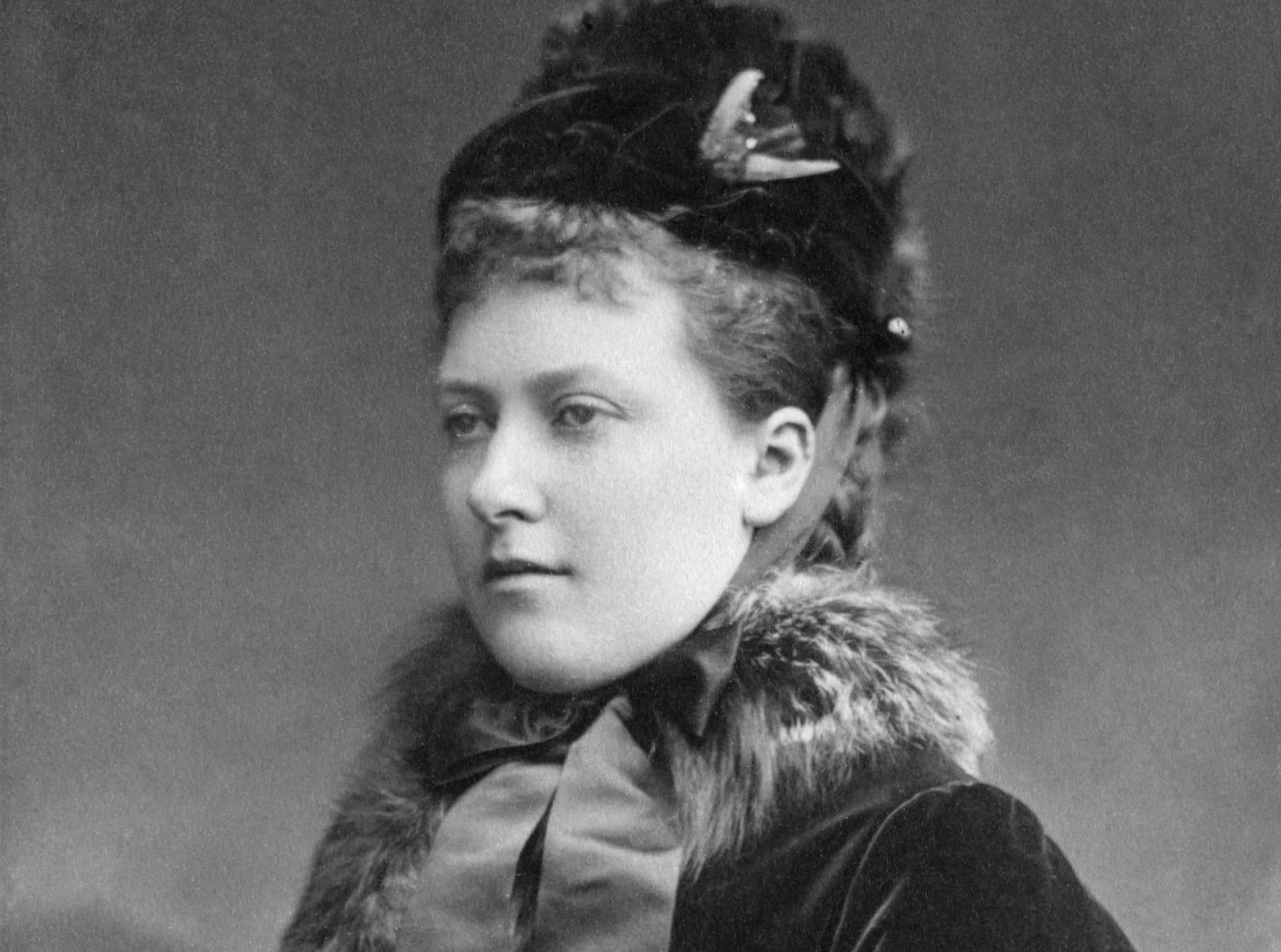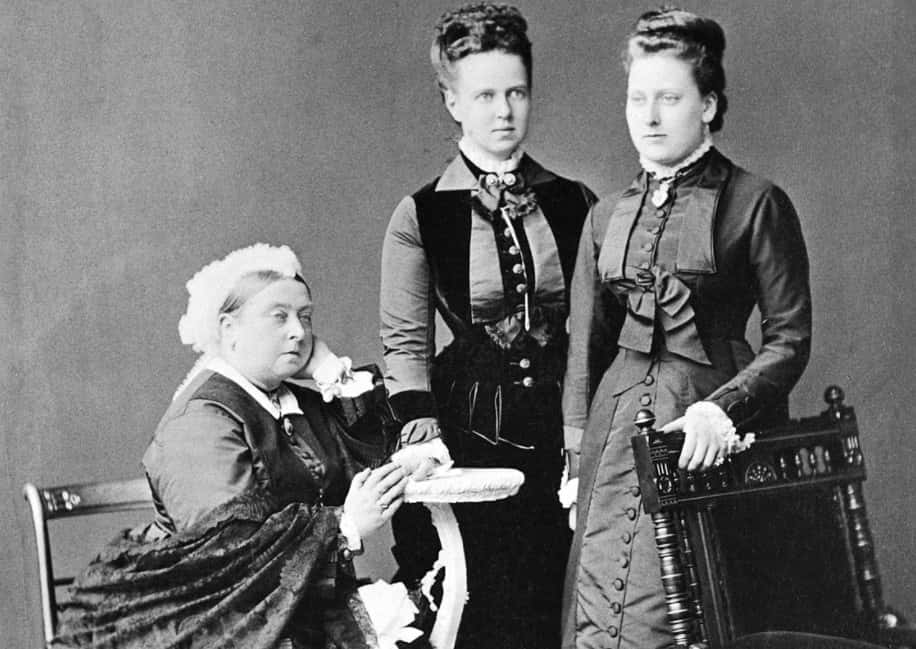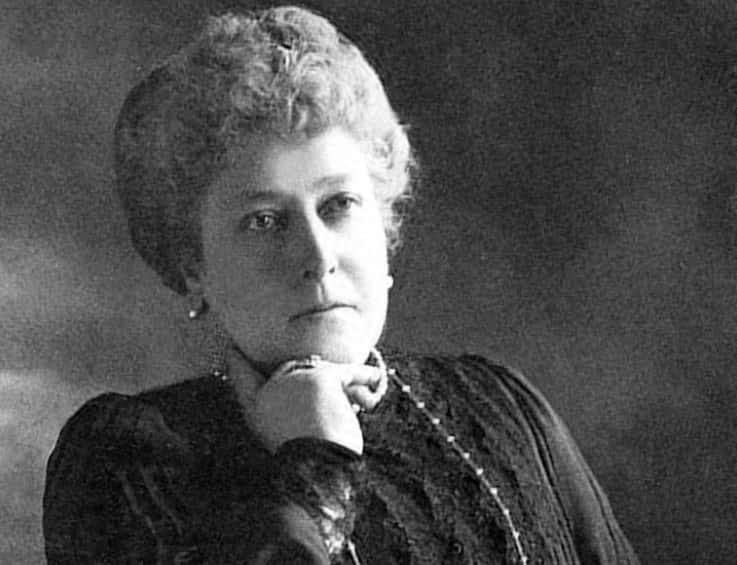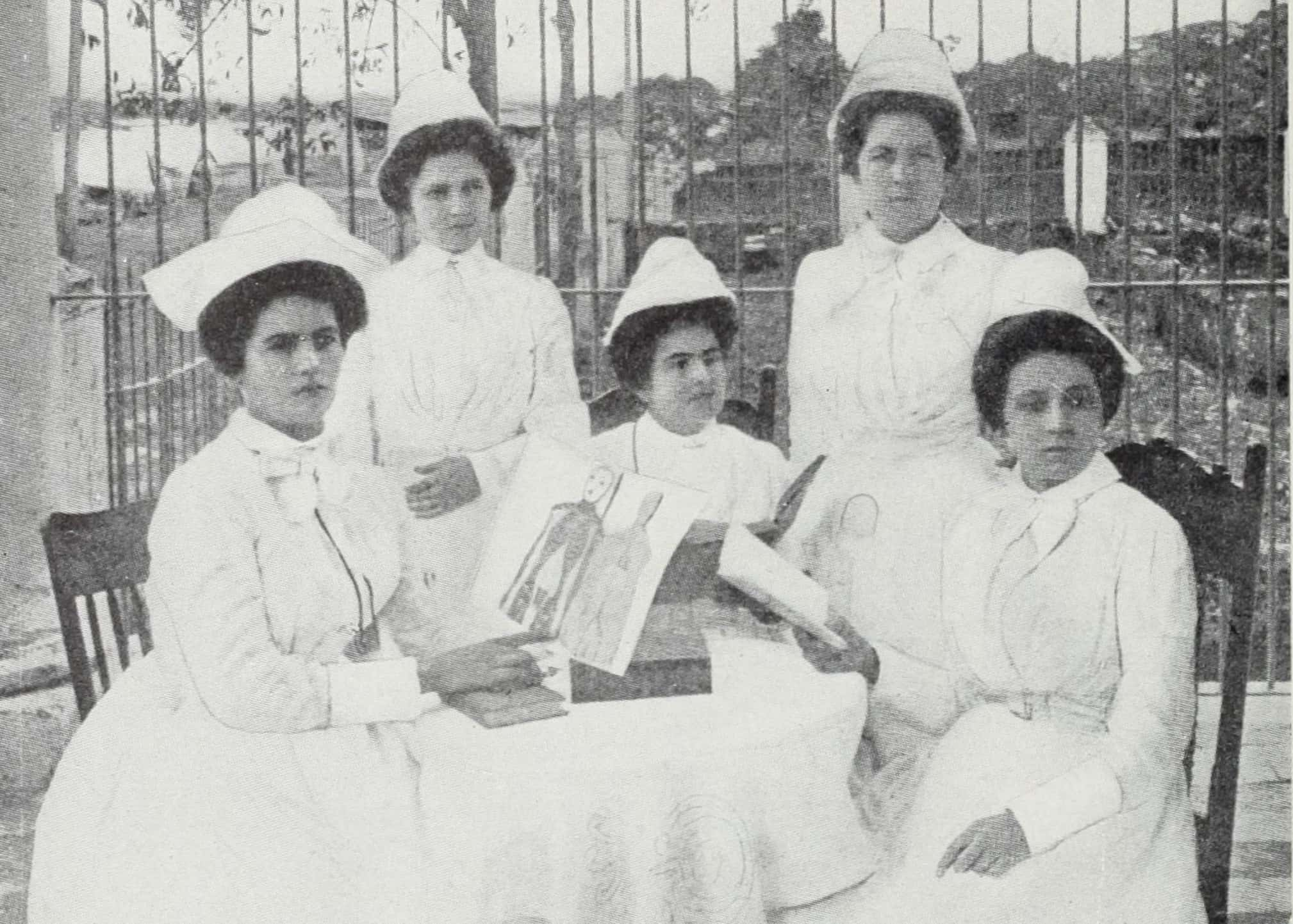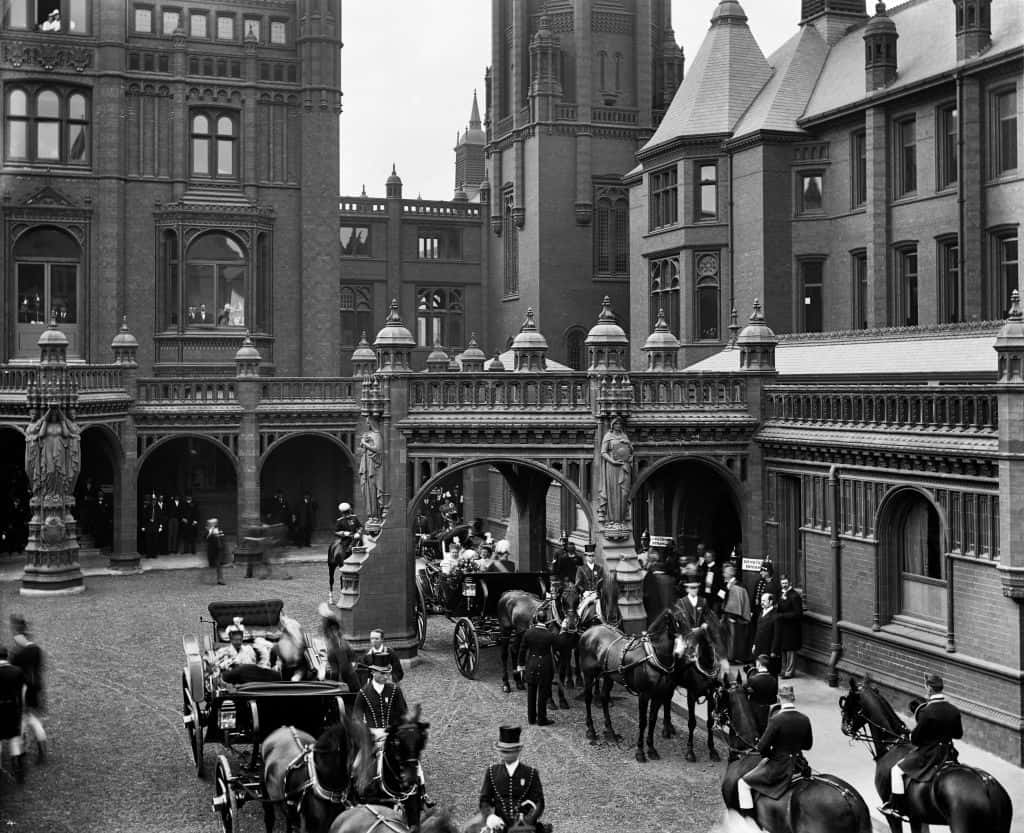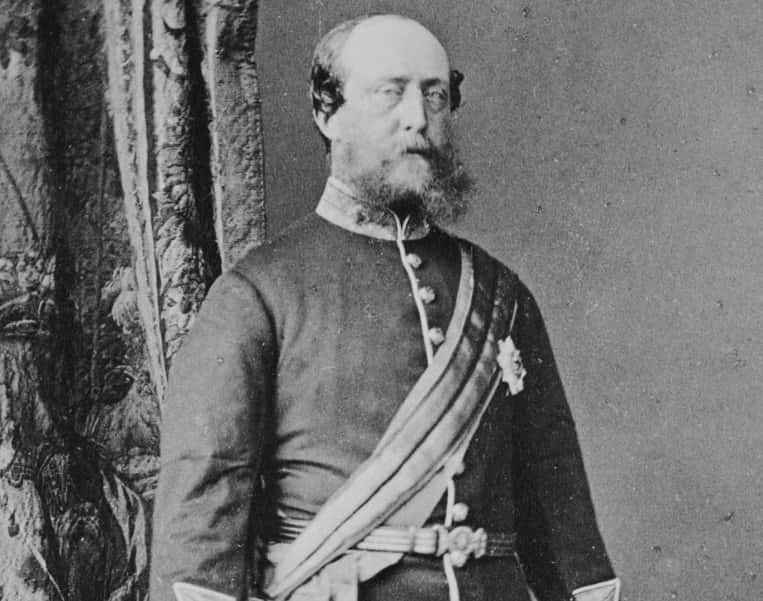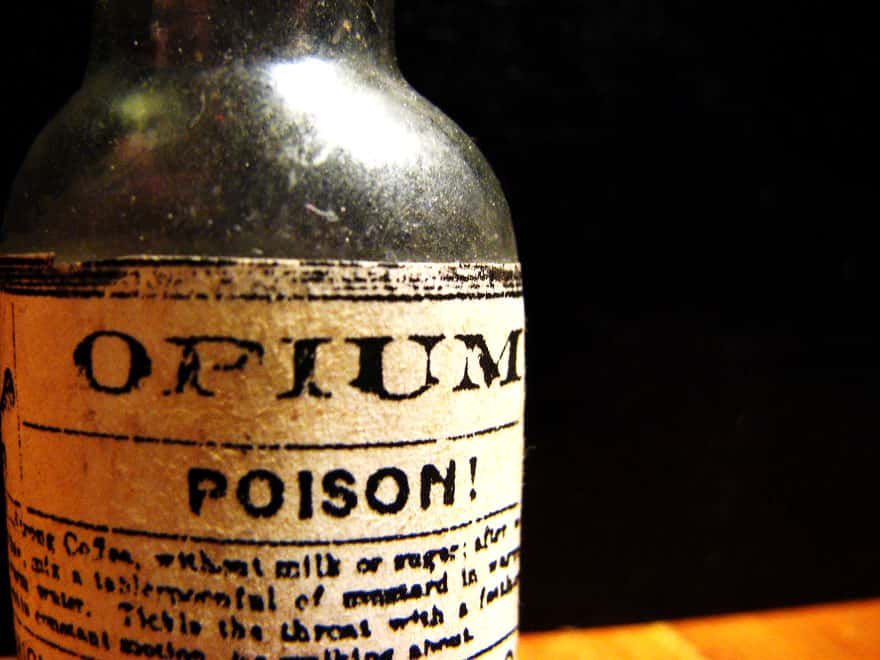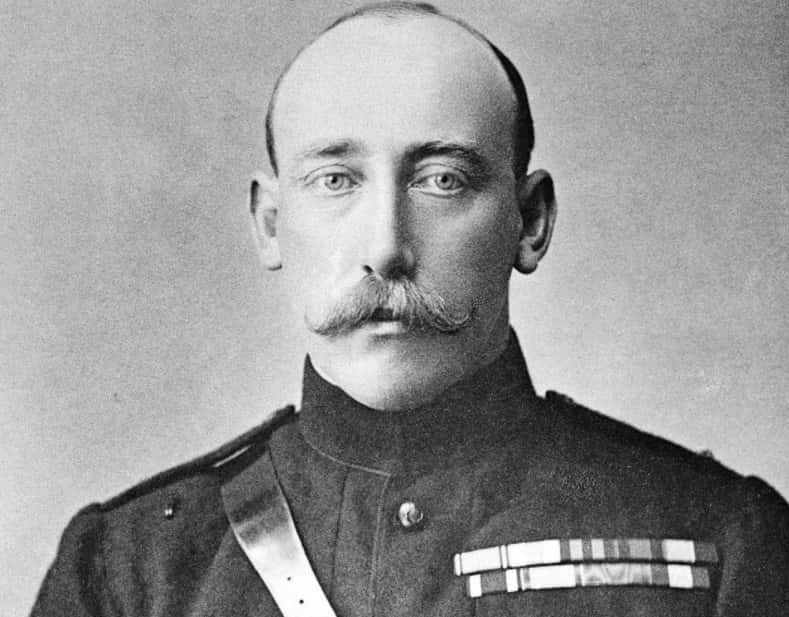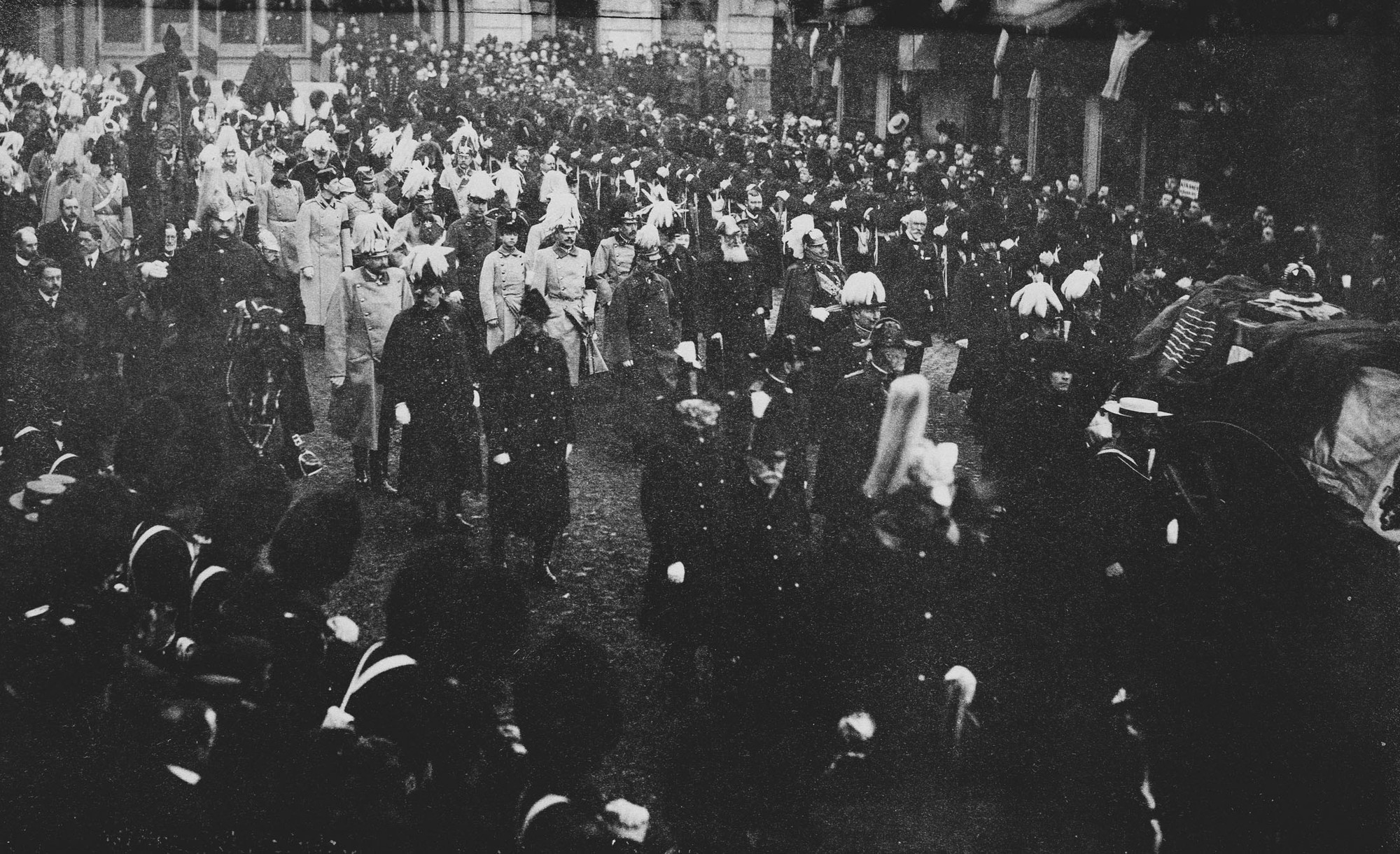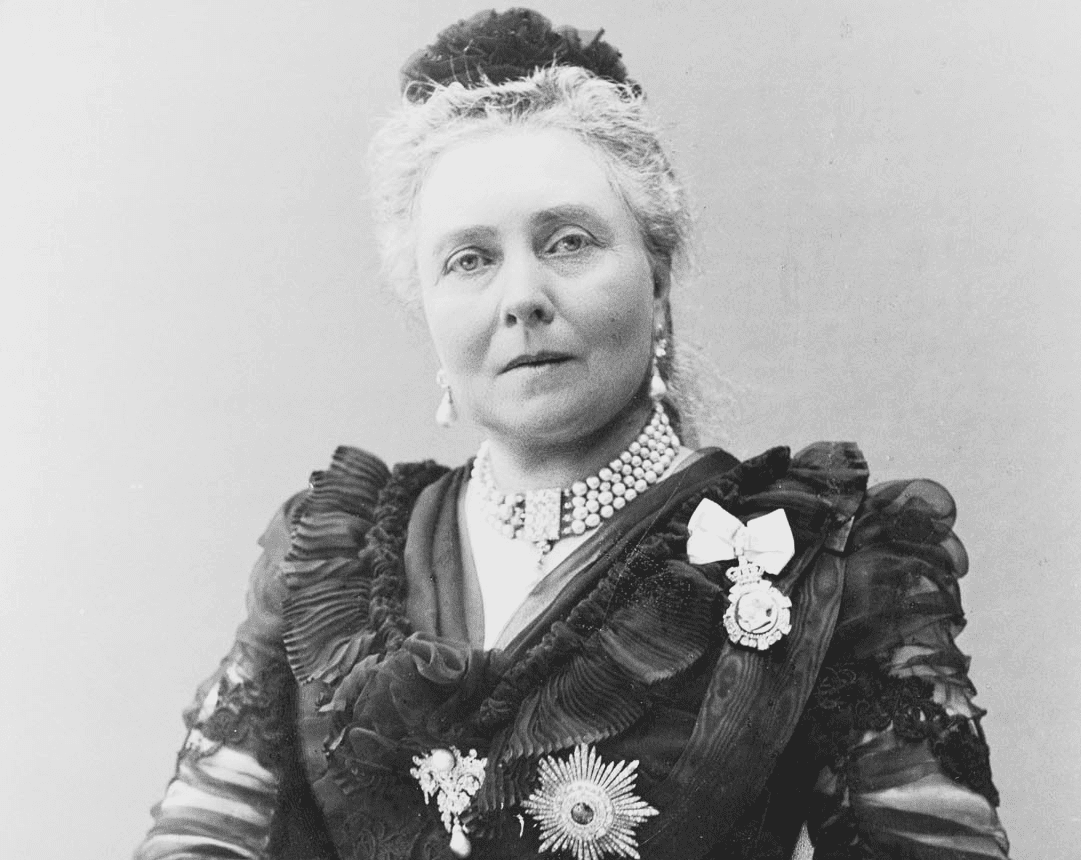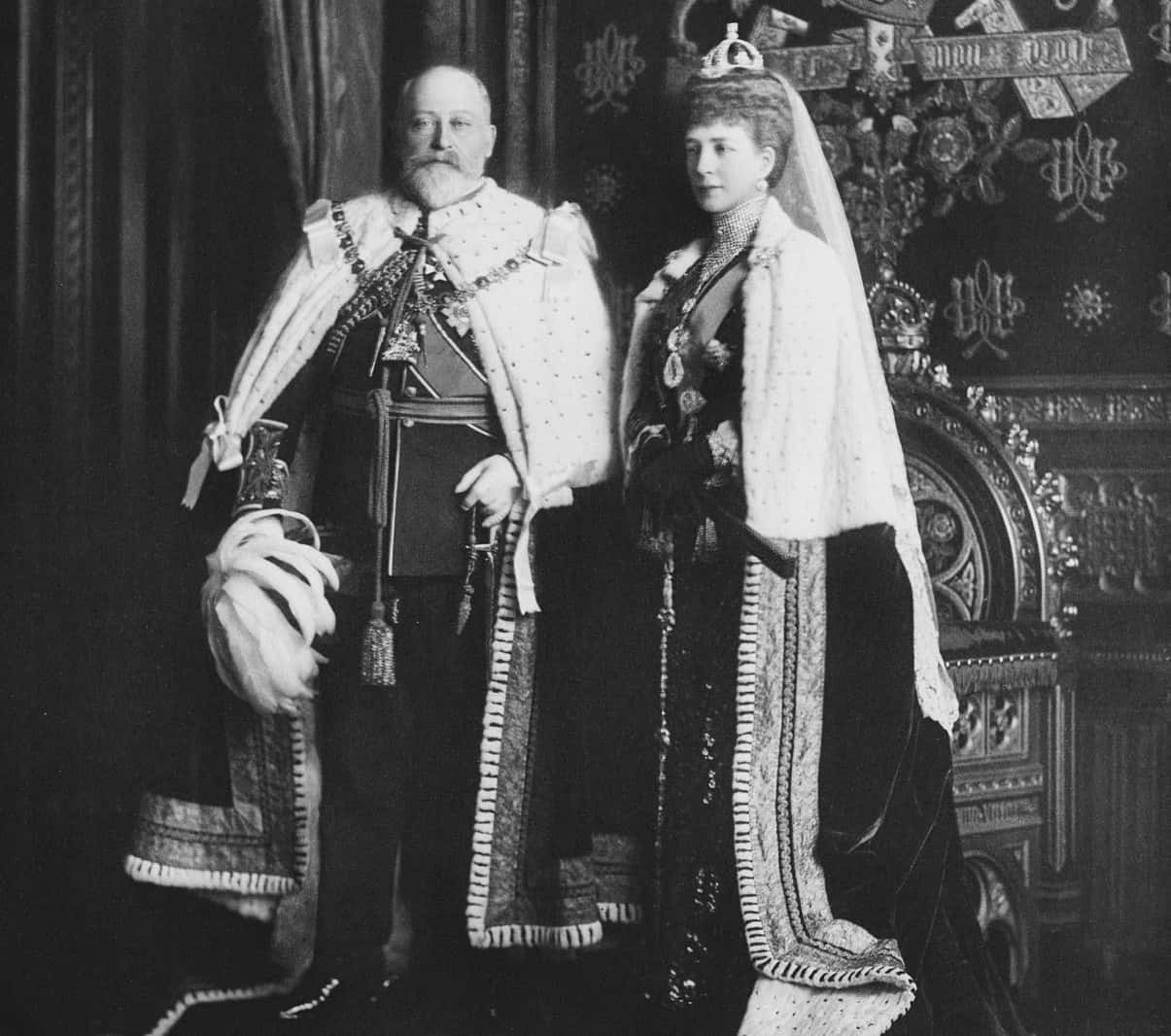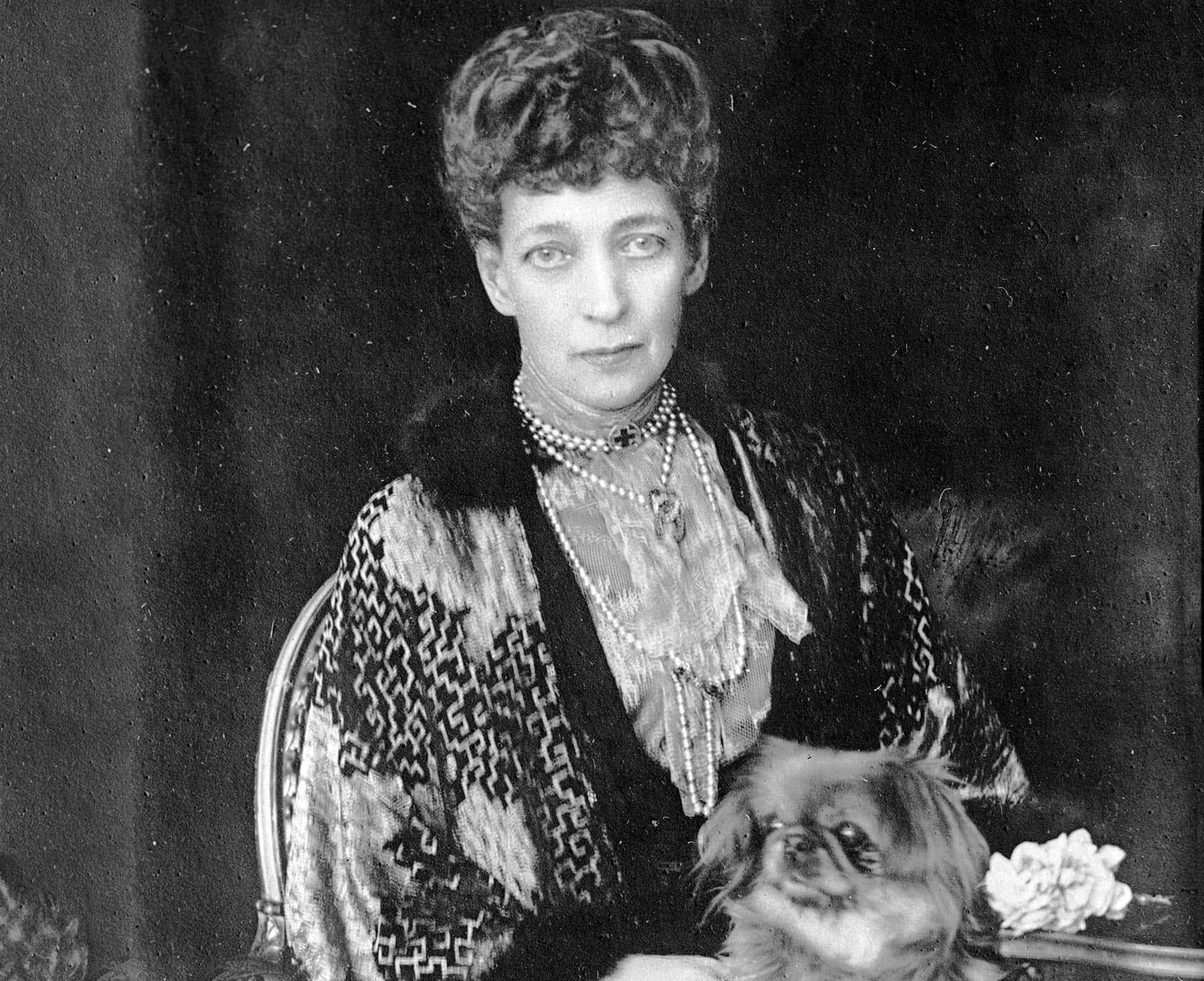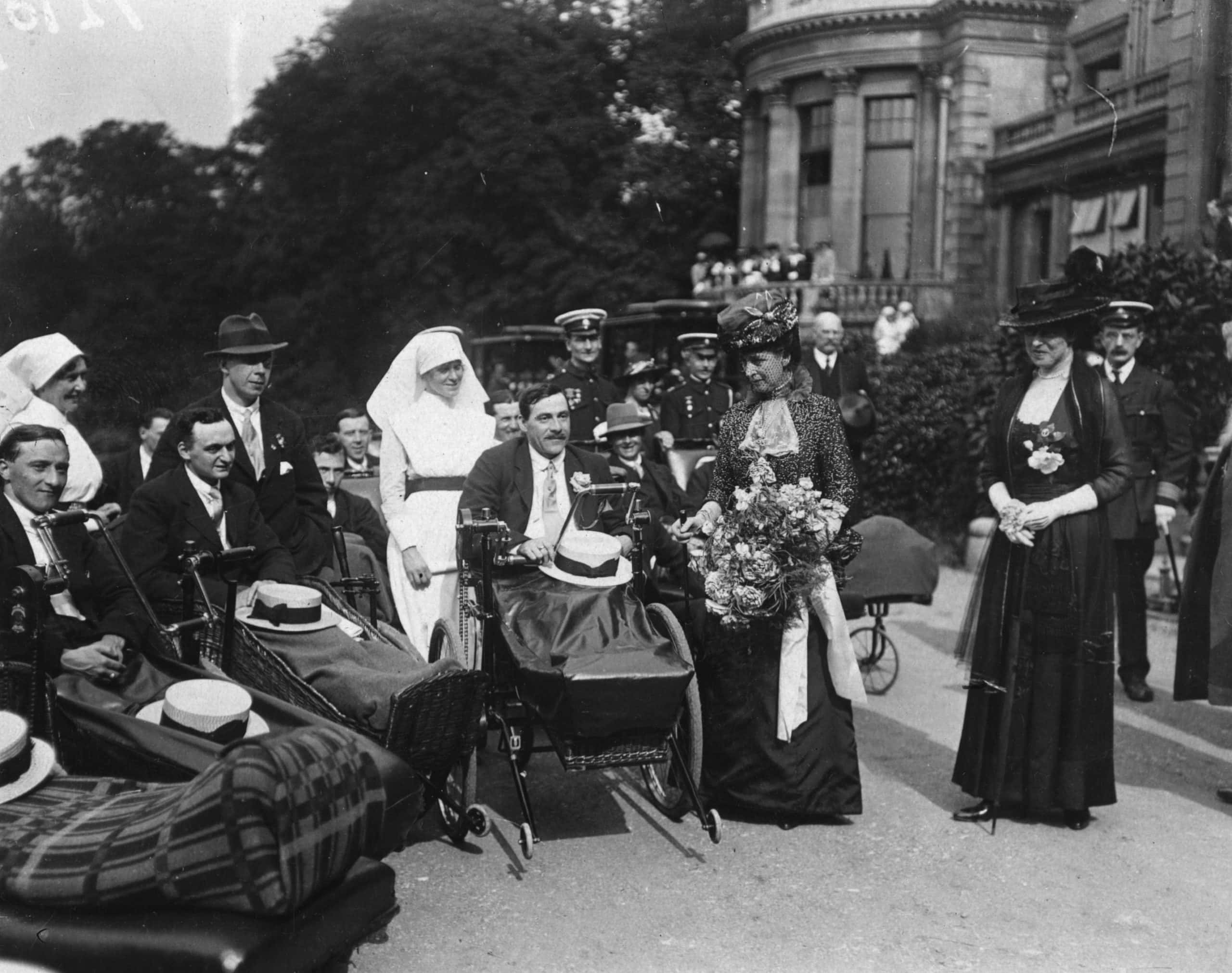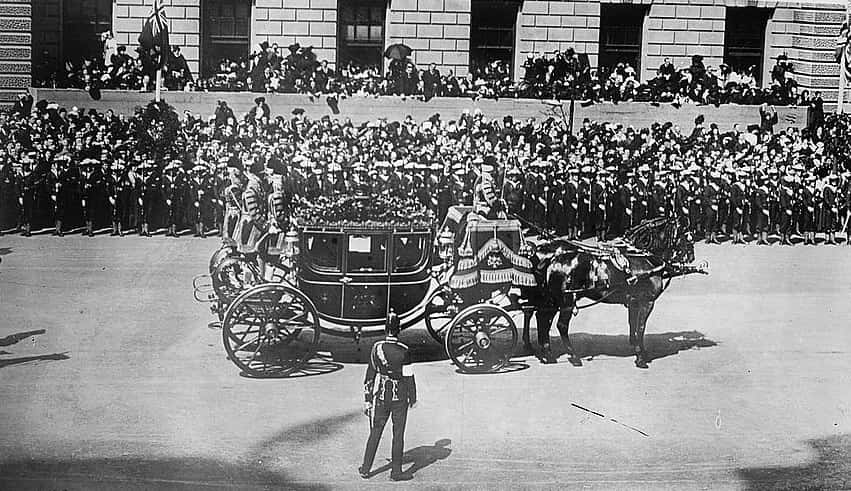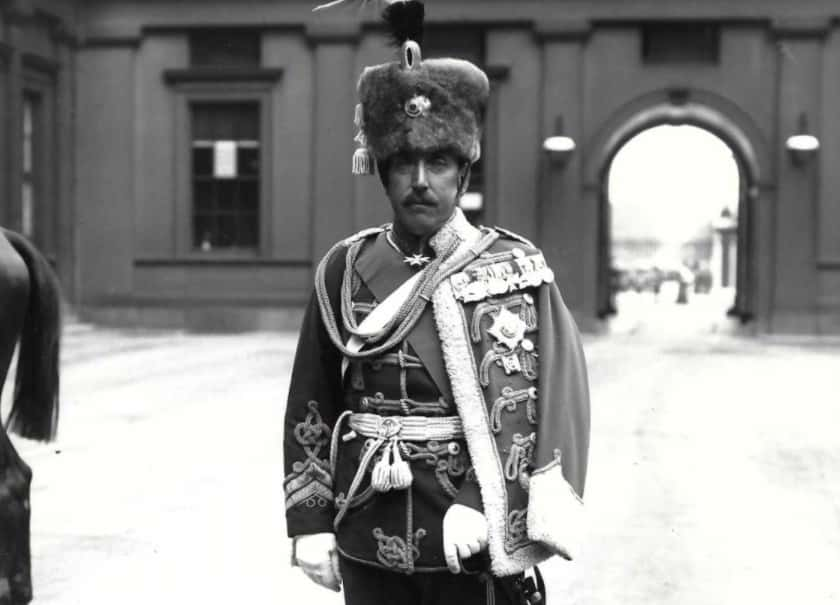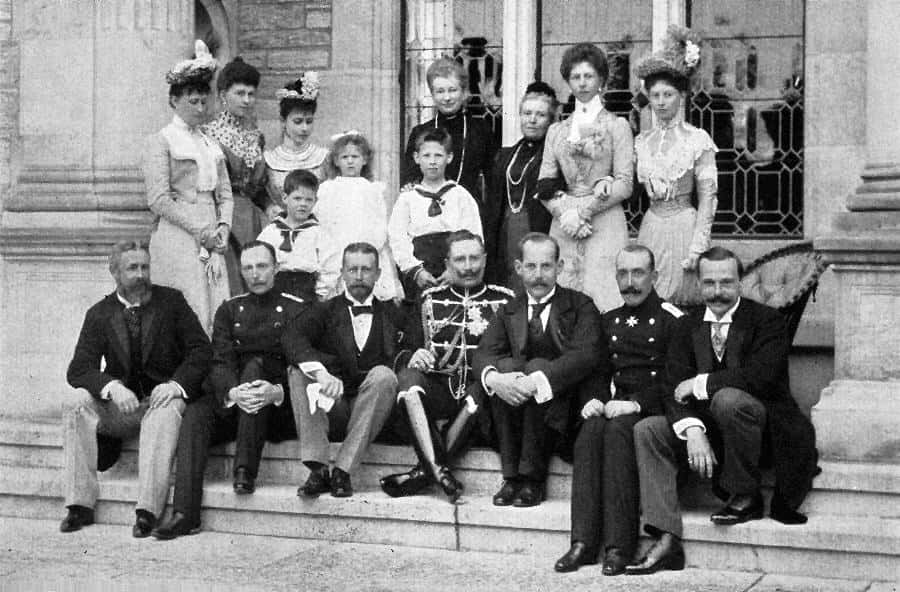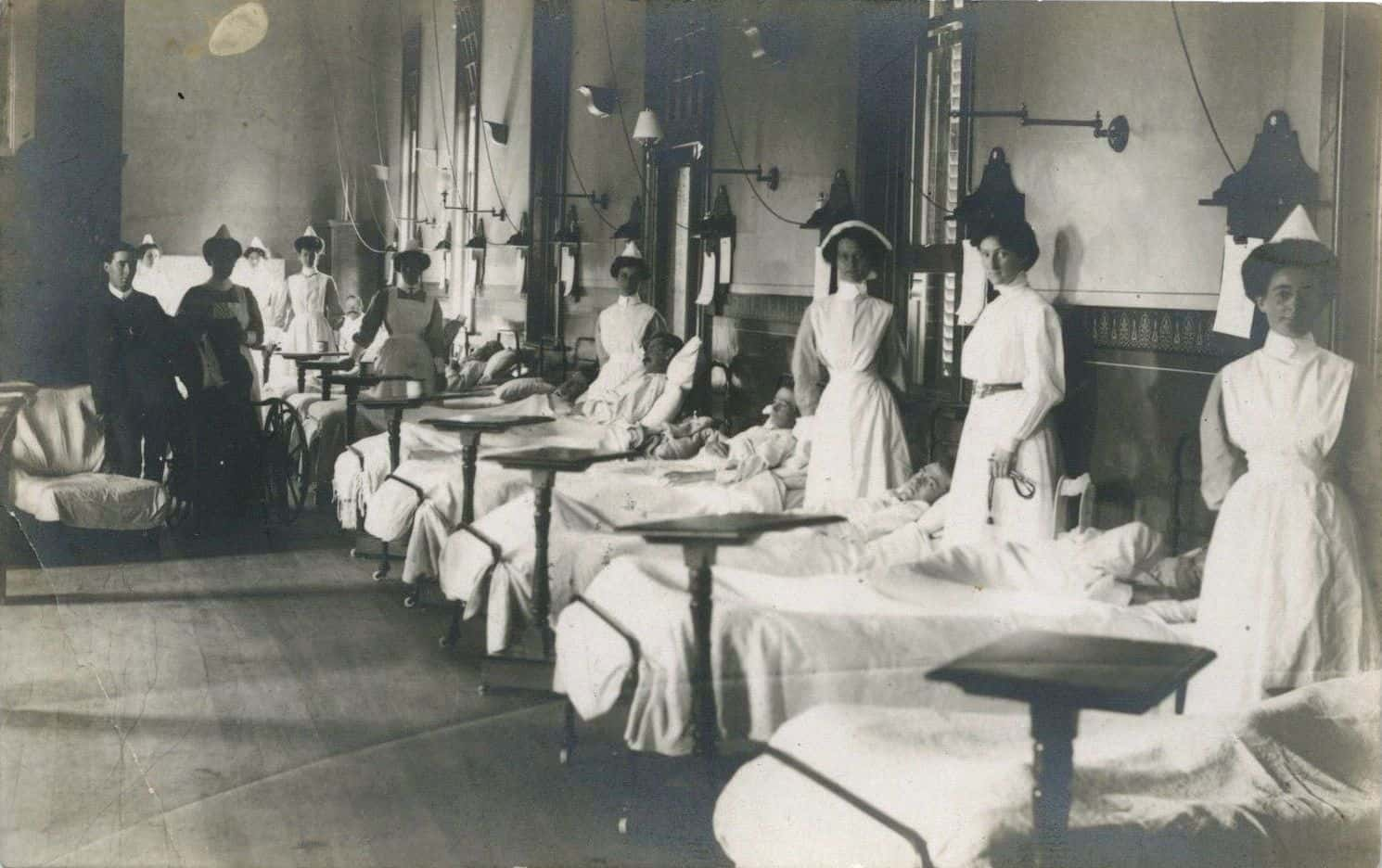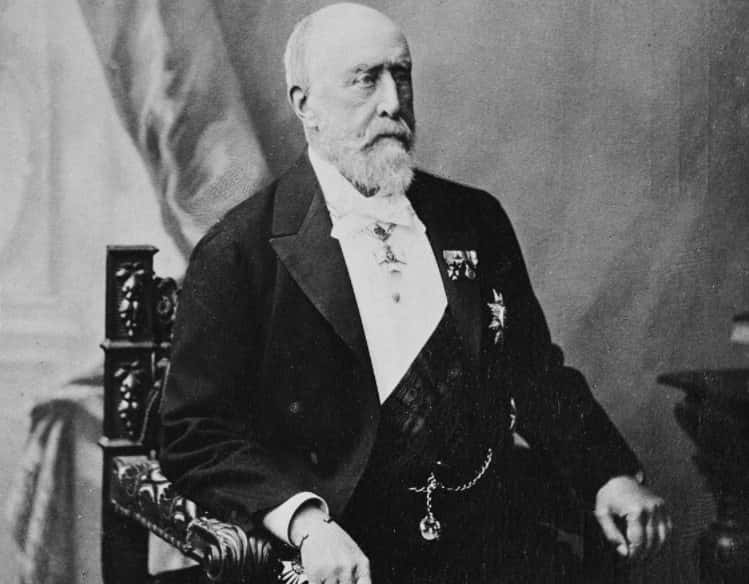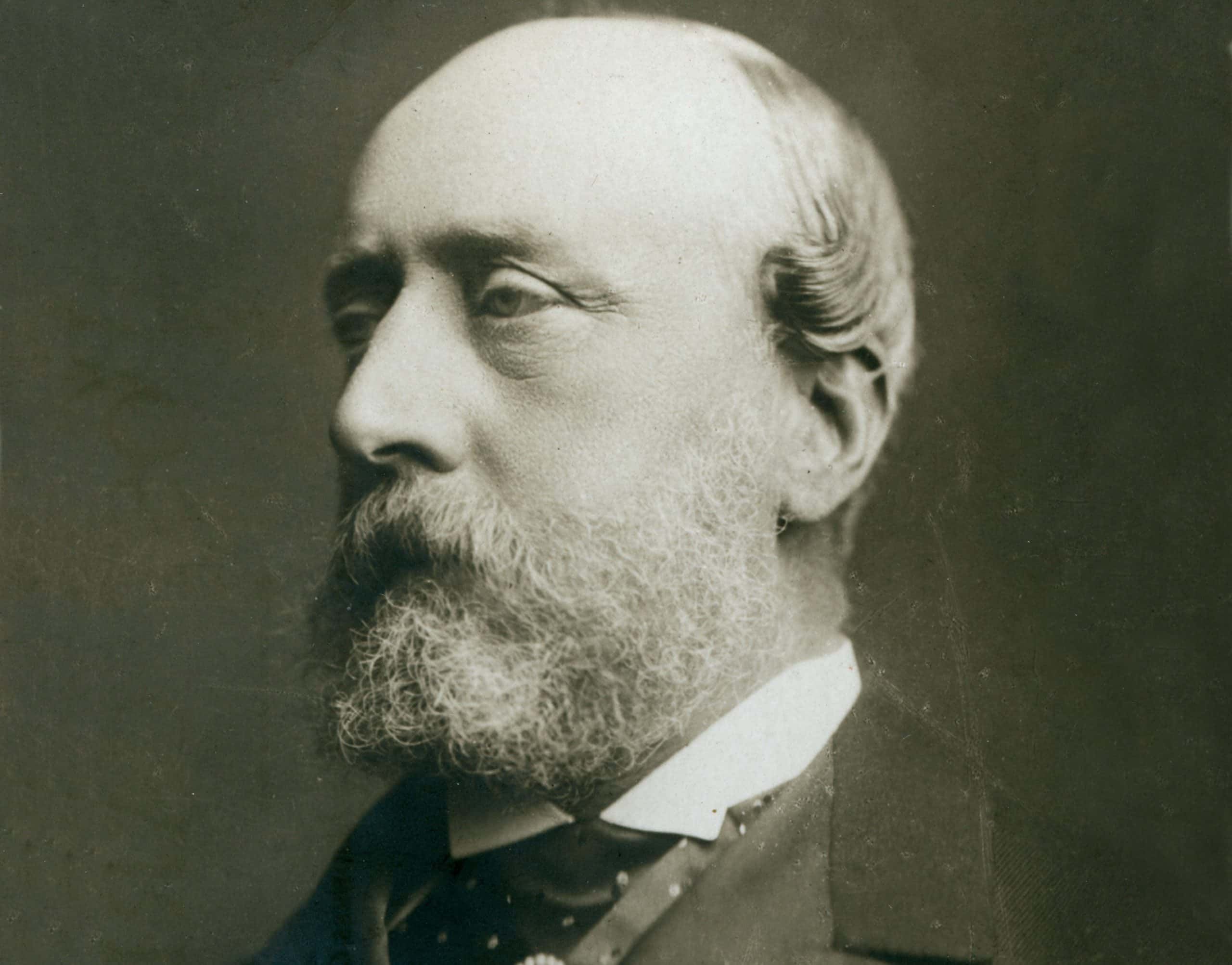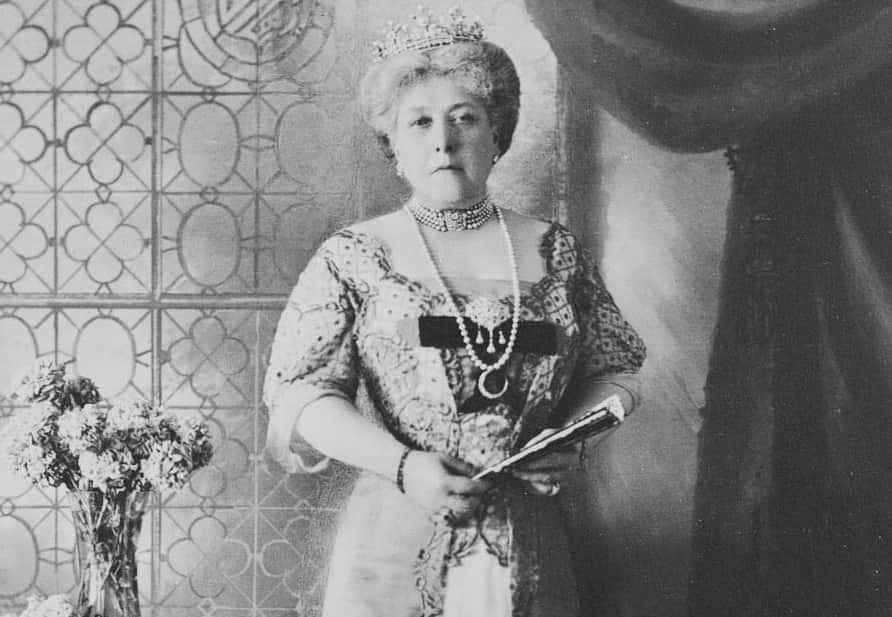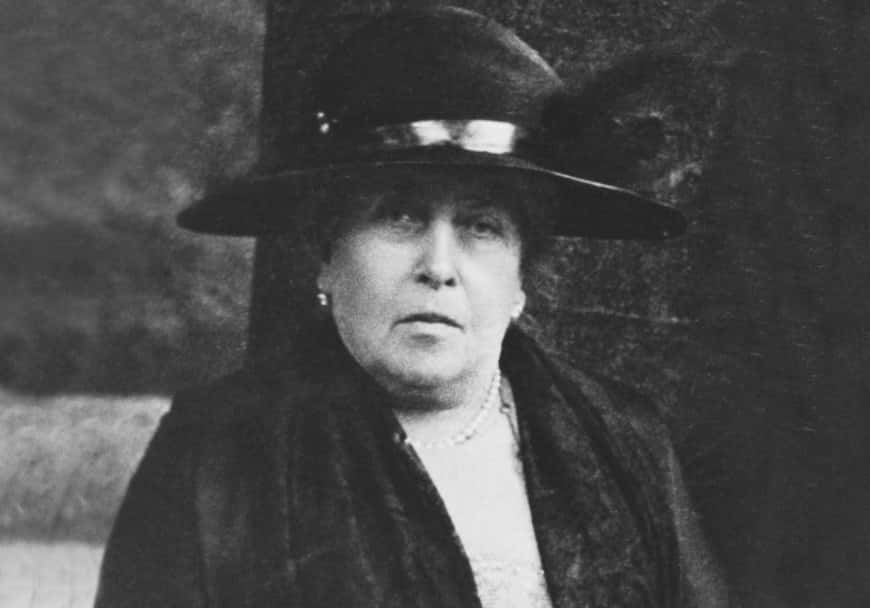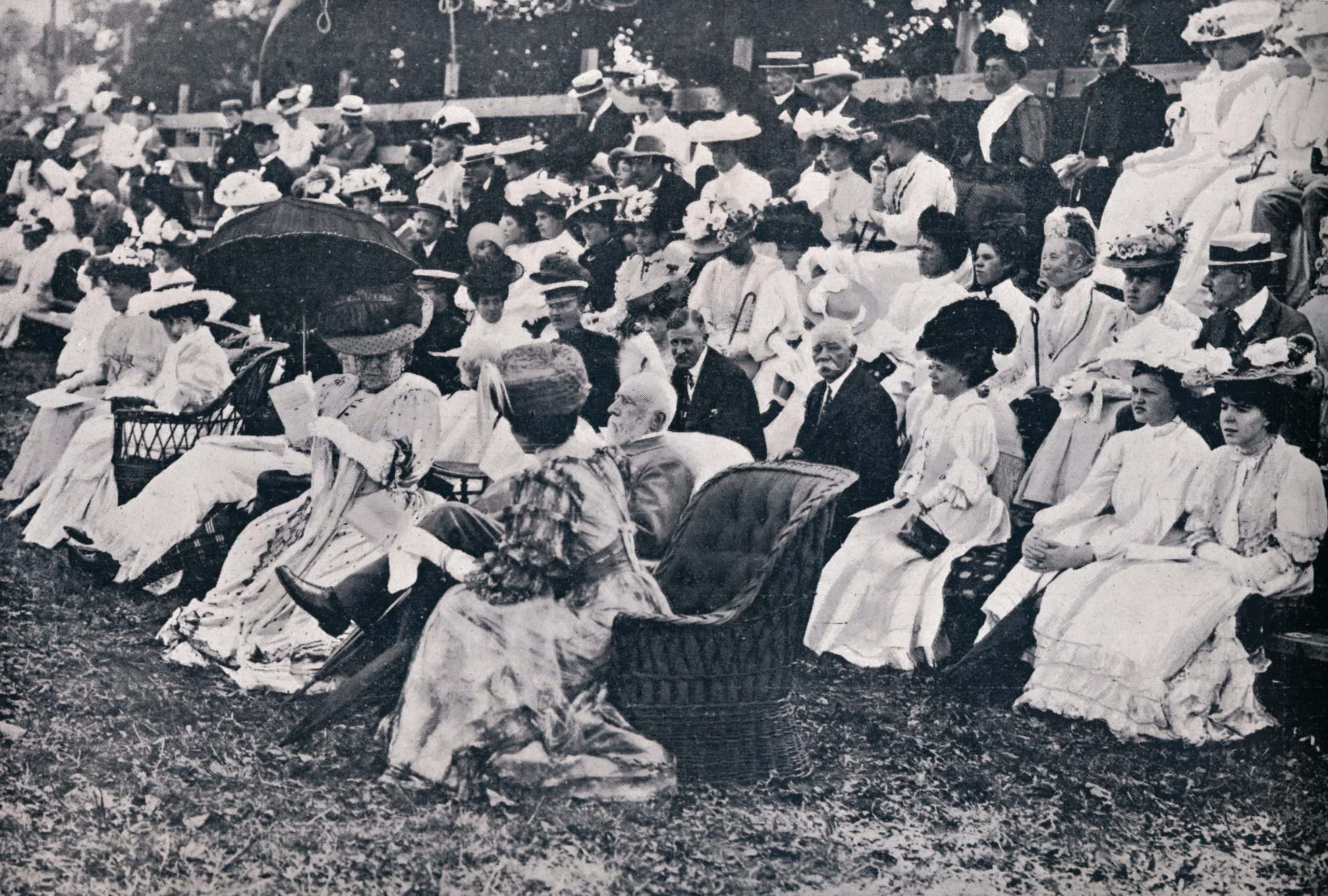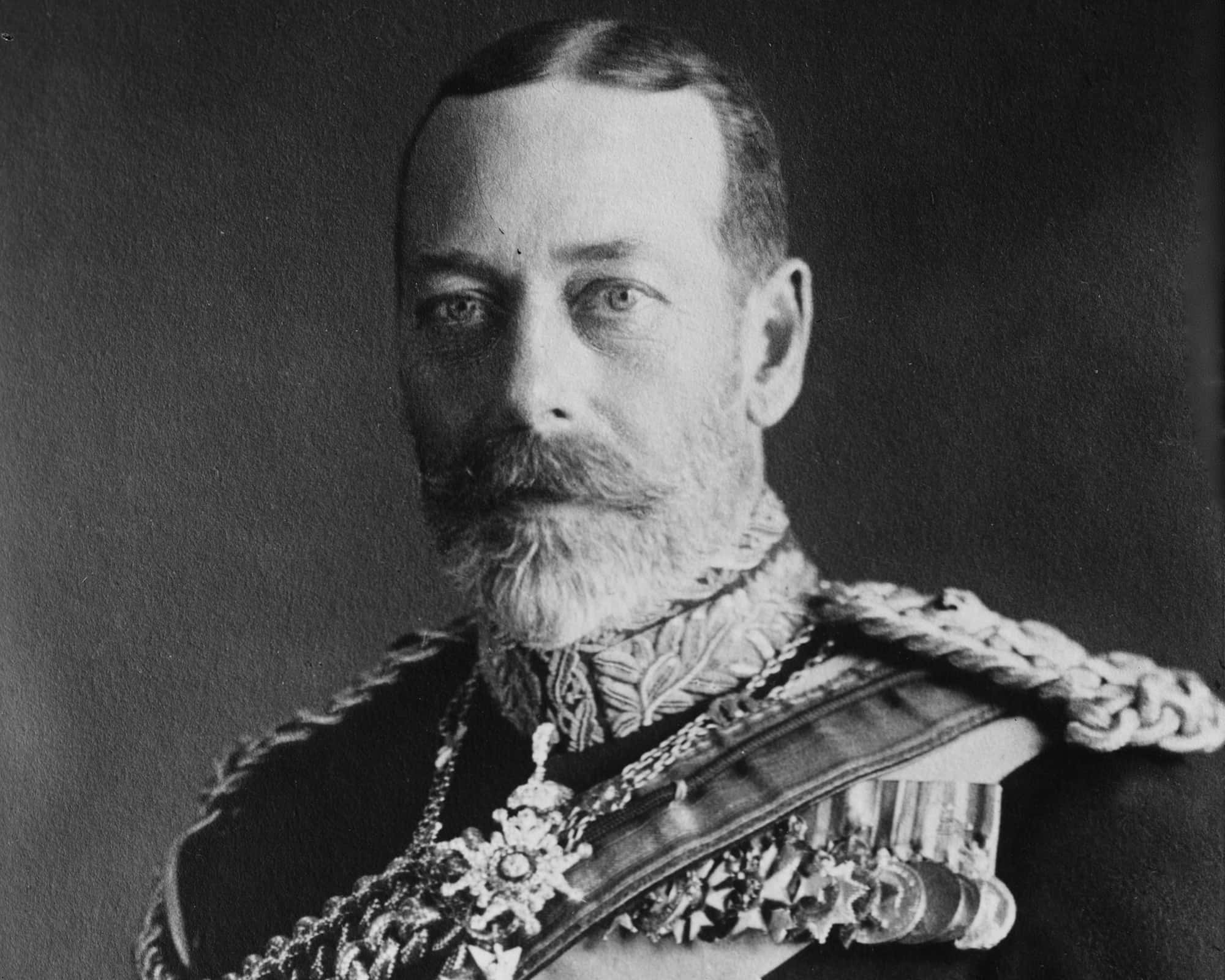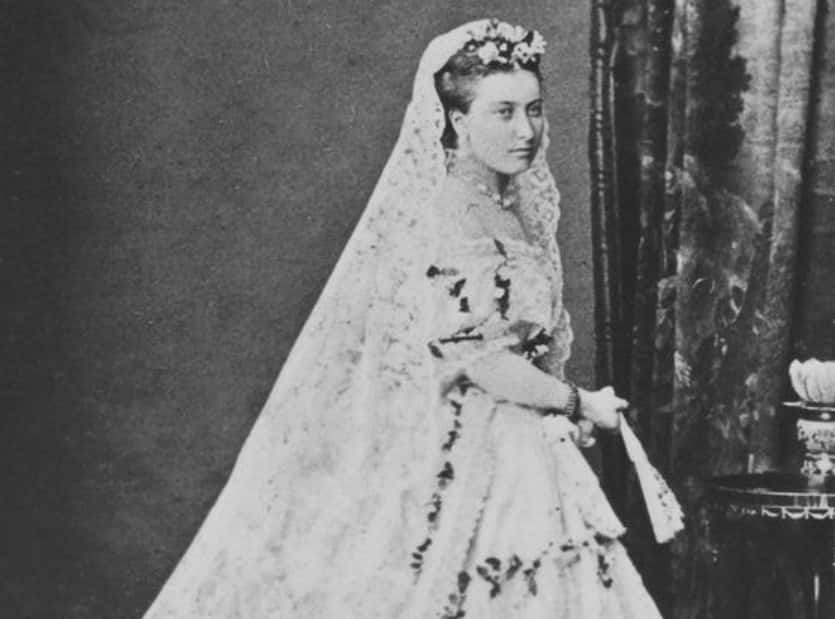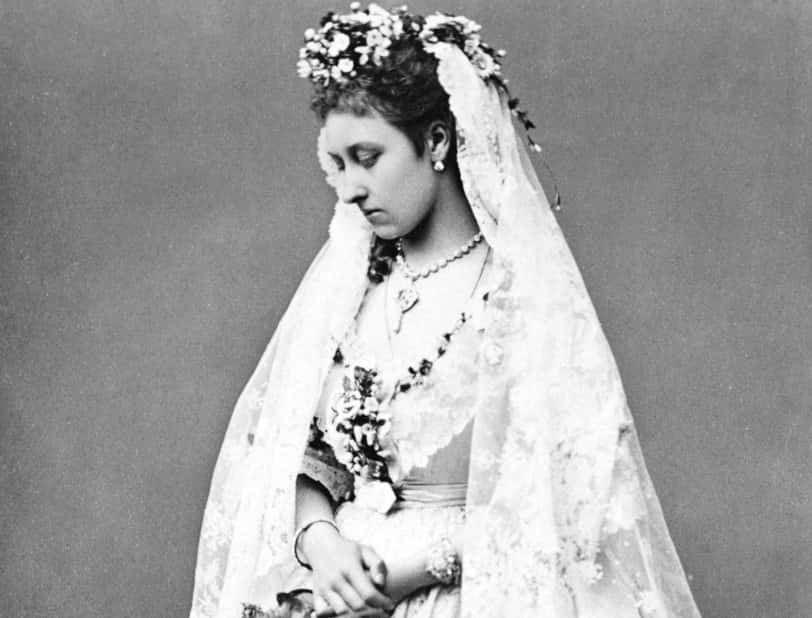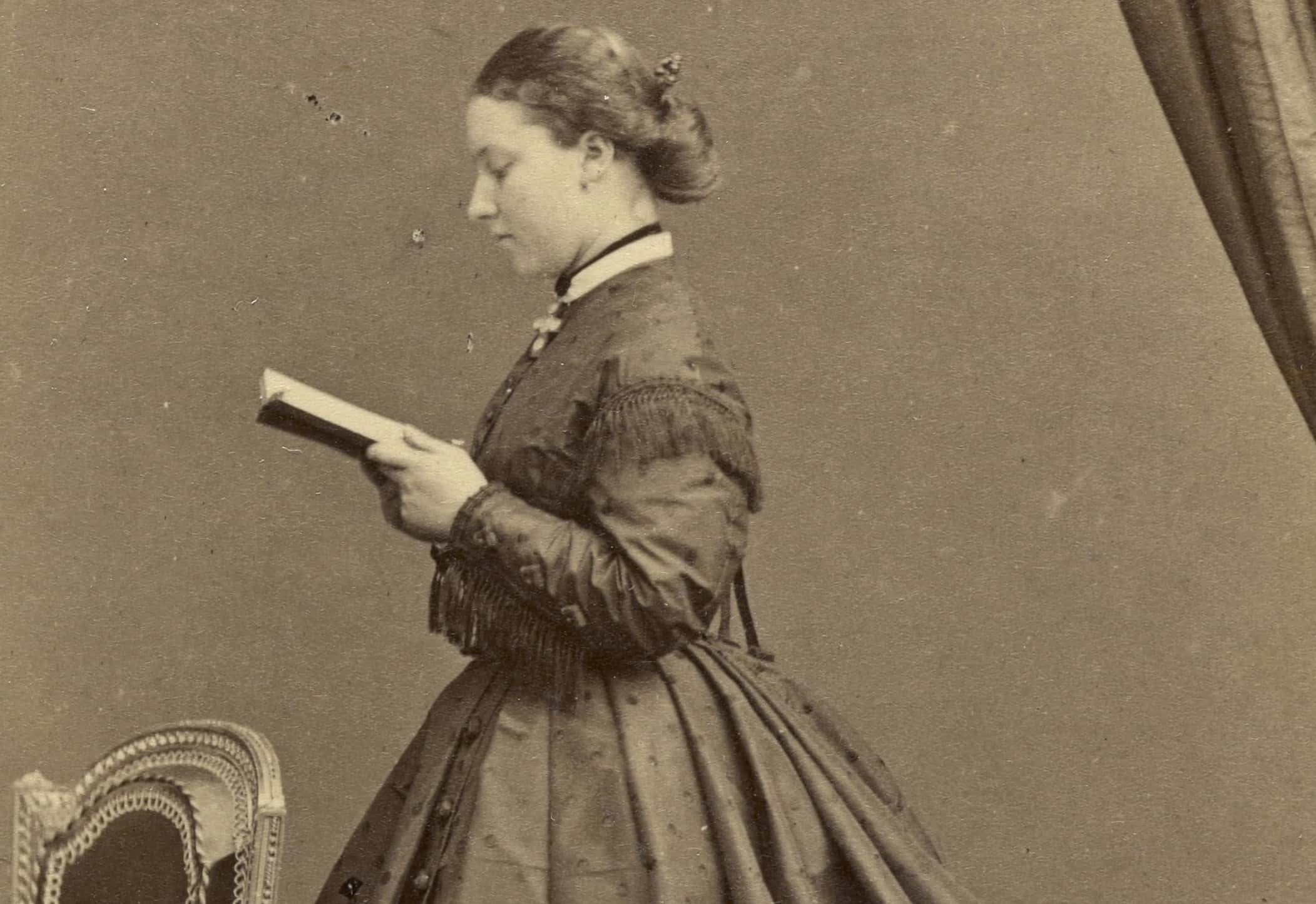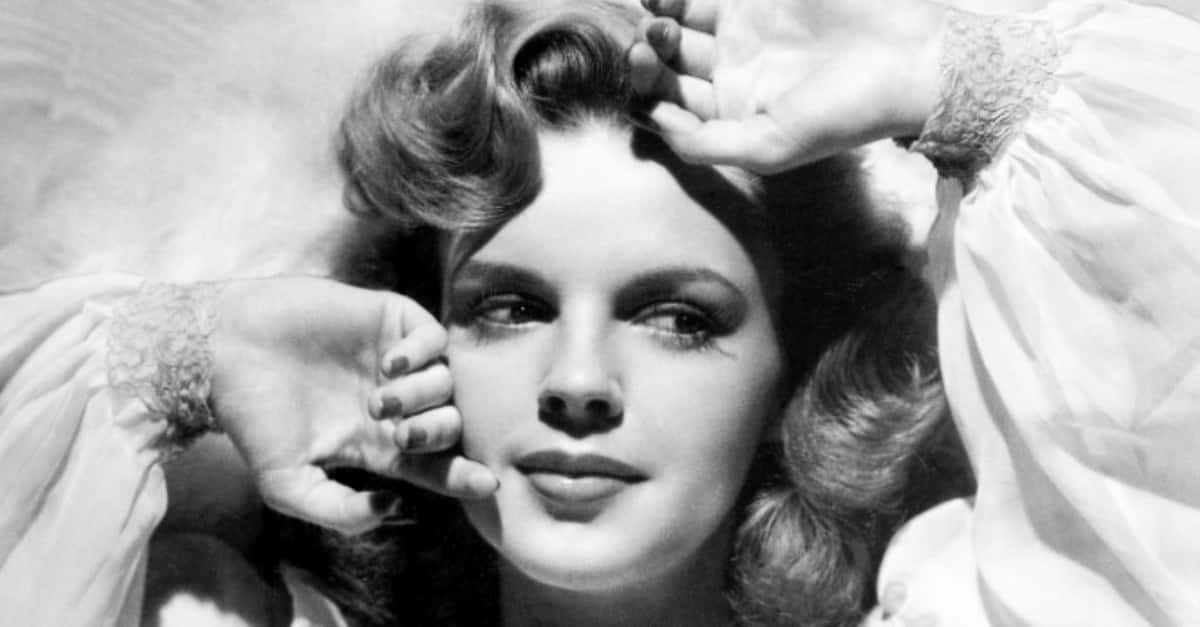Princess Helena Was Queen Victoria's Forgotten Daughter
Of all of Queen Victoria’s children, Princess Helena Augusta Victoria is usually the least remembered. Given that she was an extremely private individual, most of what we know about Princess Helena comes from her mother’s diaries…and her mother wasn’t her biggest fan.
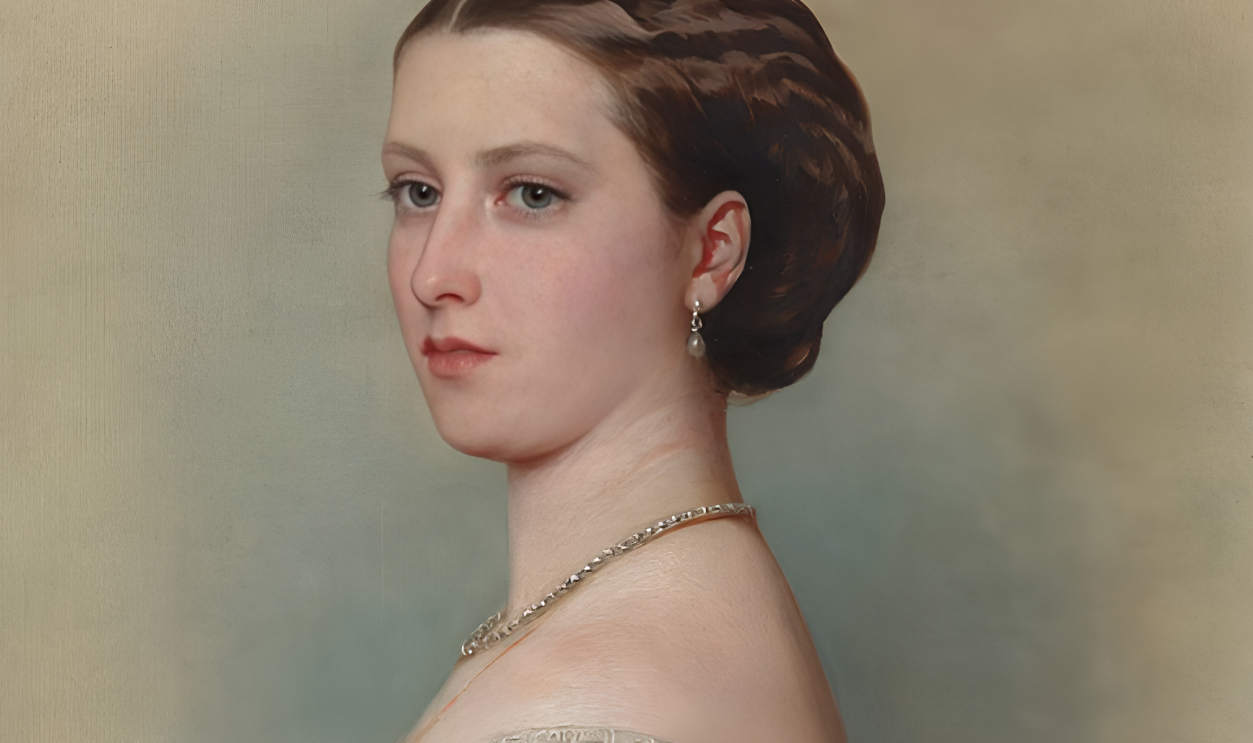
1. It Wasn't A Smooth Start
Princess Helena’s life started off on the wrong foot. Born on May 25, 1846, she wasn’t the healthiest of the royal babies. When she entered the world, she was, as her father described it, “quite blue.” Although baby Helena recovered well under the care of her family’s royal doctors, her birth nearly brought one of the world's most powerful women to her knees.
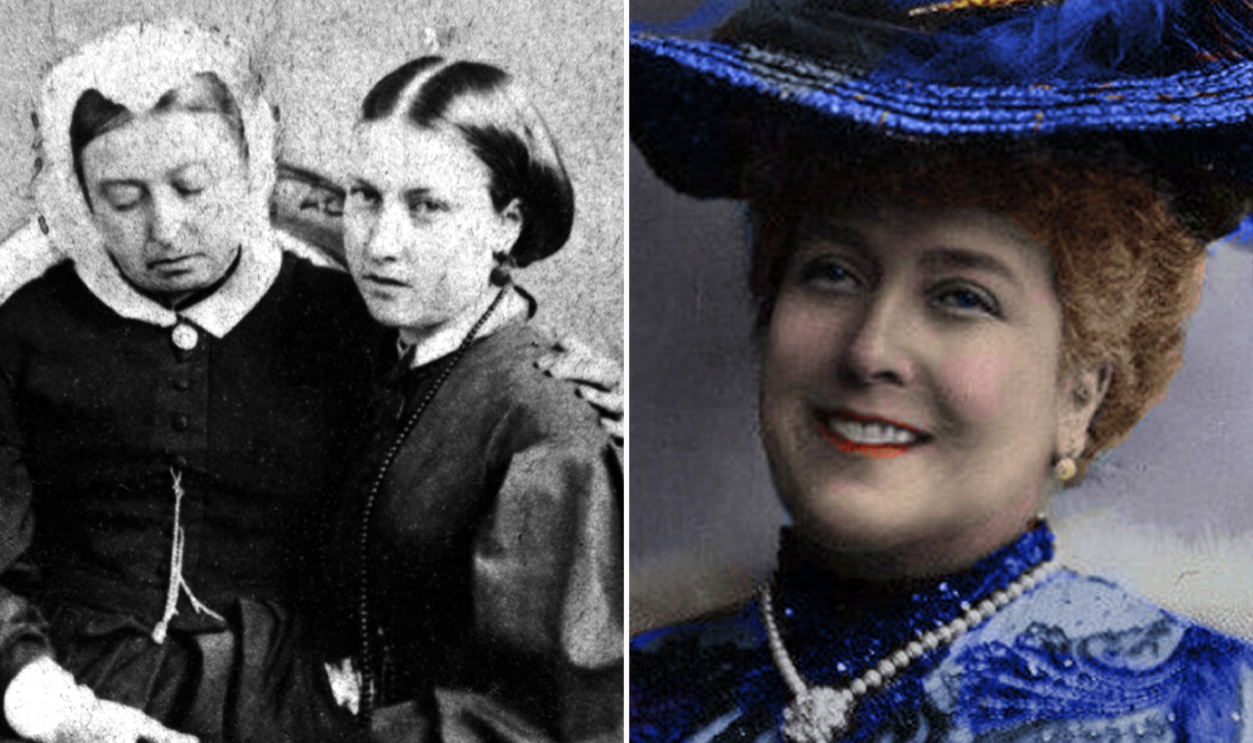
2. Her Mother The Queen
And just who was that woman? She was Queen Victoria. Giving birth to Helena was so difficult that the Queen—who once chastised her husband for wanting to take more than two days off for their honeymoon—had to put a pause on her royal duties to recover from the ordeal. Already, Helena proved herself to be quite the troublemaker, and it only got worse as she grew up.
3. Attention Didn't Come Without A Fight
Helena had eight royal siblings, and the rivalry between them all was intense. As a child, Helena’s brothers teased her relentlessly, but this little girl was no shy wallflower. If her brothers ever went too far with their teasing, sweet Princess Helena was known to punch them right in the nose if need be! The royal infighting didn’t end there either…
4. She Could Do It All
The sibling rivalry with her sisters was just as intense as with her brothers. Like the other princesses, Helena was multi-talented: she played the piano, had a talent for drawing, rode horses, and, at the insistence of her father, learned how to cook, clean, and farm. She was, in many respects, one of the most talented of the Queen’s children, that is, until her younger sister came along.
5. Her Sisters Usurped Her
The King and Queen welcomed baby Princess Louise into their family with much joy—but for Princess Helena, Louise became quite the thorn in her side. Not only did Louise usurp Helena’s place as the youngest in the family, but it quickly became evident that Louise’s talents outshone Helena’s. Poor Helena was soon overshadowed by all her sisters, and a family tragedy only made life for Helena worse.
6. She Got Some Bad News
On December 14, 1861, Helena received the devastating news that her beloved father, Prince Albert, had lost his life to typhoid fever. Helena’s entire family grieved deeply, with Helena writing to a friend: “I adored Papa, I loved him more than anything on earth…he was my help and adviser…These hours were the happiest of my life, and now it is all, all over.” What her mother did next only made Helena’s grief harder to bear.
7. Her Mom Sent Them Into Isolation
A Grieving Queen sent Helena and the rest of her sisters out of Windsor. The entire royal household moved to Osborne House, where they began a period of mourning and isolation from the public. In this time of grief, Helena should’ve been able to depend on her family for support, but their dysfunctional relationship made this impossible.
If anything, her mother’s actions only made Helena lonelier.
8. She Was Tossed Aside
Without the support of her husband, the Queen relied on Helena’s older sister Princess Alice. She was like an unofficial secretary. Alice herself needed help, though; as the next eldest, Helena was the obvious choice. Her mom disagreed however, as she deeming Helena unsuitable due to her penchant for bursting into tears. Further rubbing salt in the wound, the Queen chose Helena’s younger sister, Louise, as an assistant instead. Left alone, Helena soon got herself into a world of trouble.
9. She Fell For The Wrong Man
Now isolated from her family in her own home, Helena unsurprisingly looked elsewhere for love and affection. Unfortunately, she found it in the form of Carl Ruland. This romance was doomed from the start; not only was Ruland the former private secretary to her dad, but he was roughly 13 years her senior. When Helena’s mom found out about the whole affair in 1863, she was not pleased.
10. Her Mom Took Over Her Love Life
Helena’s mom immediately fired Ruland and sent him back to Germany. Helena was probably heartbroken, but her suffering was just beginning. The Queen then decided that the best way to keep the royal teen out of trouble was to marry her off right away and she would be the one to choose who the future husband would be. But Helena faced a bit of a handicap when it came to finding the perfect match.
11. She Was An Ugly Duckling
According to Princess Helena’s own personal biographer, Helena was “chunky, dowdy and double-chinned”—in other words, she wasn’t exactly your fairytale vision of a princess (ouch!). Being a middle child also made securing a good marriage alliance difficult. Helena already had a ton of (uncontrollable) factors stacked against her, but her mom threw in one more condition that made marrying Helena a difficult pill to swallow.
12. Her Mom Underestimated Her
You see, Helena’s mother married her older sister off in 1862, which forced the role of the Queen’s unofficial secretary onto Helena. To her mom’s surprise, Helena excelled at her job, and she proved herself to be an excellent companion to the Queen. As a result, Helena’s mom stipulated that any man wishing to marry Helena needed to move in with them.
As you can imagine, very few men met these strict criteria…And the one that did inadvertently tore the royal family apart.
13. She Married A Nobody
The man chosen for Helena was Prince Christian of Schleswig-Holstein. There were several problems with this match: Prince Christian was quite poor, he was quite a bit older than Helena, and his family’s duchies were being fought over by Prussia and Denmark. Helena’s eldest sister, the Crown Princess, supported the match, while Alice spoke out openly against it.
They weren’t the only ones fighting over the proposed marriage either.
14. Her Marriage Shattered Her Family
Alexandra of Denmark, Helena’s sister-in-law and daughter of the King of Denmark, was especially outraged by the marriage. She believed that the lands in dispute belonged to her father; to Helena’s sister-in-law, the Queen’s decision to marry Helena off to Christian was nothing short of disgraceful. Needless to say, Helena’s match to Christian was a huge political scandal—but what did Helena herself have to say about all this?
15. She Defied Her Family
Despite the age difference, all the political uproar, and the family drama being caused by the proposed marriage, Helena and Christian were happy. When Helena met her future hubby, she found him “pleasing, gentlemanlike, quiet and distinguished.” Helena and her mother agreed that the match was perfect. The marriage went ahead, but it did little to improve Helena’s standing with the royals.
16. Her Wedding Was A Disaster
Helena’s wedding on July 5, 1866, was a mess. Edward VII, her eldest brother, and husband to Alexandra, nearly didn’t show up at the wedding in protest. Then, one of the guests had a sudden gout attack. To top it all off, another royal guest commented that Helena looked like she was “marrying an aged uncle.” It wasn’t exactly an auspicious start to their new life together, and the rift in the family only grew wider.
17. He Was The Perfect Man For Her
Any ordinary marriage would’ve crumbled in the face of all this family drama, but Helena and her new hubby defied all odds by having a relatively quiet marriage. Helena and Christian devoted themselves wholly to each other, and Princess Helena—considered the least eligible marriage candidate of the Queen’s daughters—mostly found happiness.
Now, if only her mother could stop making a mess of things…
18. She Broke Her Promise
Although Helena promised to stay close to the Queen after her marriage to Christian, keeping that promise was impossible. A year after her marriage to Christian, Helena became pregnant. Juggling the responsibilities of being her mom’s best friend/personal secretary, the duties of being a wife, and the physical strain of being pregnant became too much for her to handle, and her body began to fail her.
19. She Was Constantly Ill
Like her mom, Helena popped out kids in rapid succession. She gave birth to Christian Victor in 1867, followed by Albert in 1869, Helena Victoria in 1870, and Marie Louise in 1872 (phew!). Being constantly pregnant was hard on Helena’s body; combine this with her ailing health, and it’s no wonder Helena was constantly sick. Her mother wasn’t exactly sympathetic about the whole situation, though.
20. Her Mom Didn’t Believe Her
Far from empathizing with Helena, the Queen actually accused her of hypochondria, which she claimed Christian encouraged. Helena had good reason to be constantly worried about her health, though. Between 1869 to 1871, Helena suffered from bouts of illness including rheumatism, joint pain, and severe congestion in her lungs. In addition, there was another serious, more sinister, health problem that proved to be the most worrisome of all.
21. She Suffered From Addiction
On top of her numerous health problems, Helena struggled with addiction. Her substances of choice were opium and laudanum (a tincture containing opium), which a doctor prescribed to her. In spite of her addiction, Helena tried to build a life for herself, away from the court and her overbearing mother. Being away from her mother gave Helena some much-needed breathing room—but her life was not safe from misfortune.
22. She Endured Grief And Loss
On May 12, 1876, Helena and her husband welcomed baby Harald, the fifth of their children, into their lives. Helena’s joy, however, was brief; baby Harald only lived to eight days old. Just a year later, tragedy struck Helena again; on May 7, 1877, Helena gave birth to a stillborn child. The shock of losing two children back-to-back stunned Helena.
Unsurprisingly, the grief-stricken Helena became quite unpleasant to be around.
23. She Gave Up
According to the Queen, Helena became quite “touchy” and irritable due to her ill health. That wasn’t surprising—after all, Helena just lost two children—but Helena’s despondent reaction to her illness was downright heartbreaking. She refused to do anything about her poor health, essentially leaving her life up to fate. Eventually, fate took another stab at Helena’s family, but the resulting tragedy was not one she had ever expected.
24. She Lost Her Sister
On December 14, 1878, Helena’s sister, Alice, lost her life to diphtheria. The grief nearly took Helena’s breath away. While Helena’s sister initially opposed her marriage to Christian, Alice was the one to convince Edward to show up to Helena’s wedding. The two had their differences, but they stuck by each other when it counted.
Alice’s sister was particularly worried about their mom’s influence on Helena, and as it turns out, Alice had every reason to fret over her sister.
25. She Drifted Further Away From Her Mom
As Helena recovered from her horrifying losses, she began concentrating more on her husband and children—and consequently, she began spending even less time with her mom. The Queen, who specifically brokered the marriage so that Helena could spend more time with her, was well and truly annoyed. It didn’t help that Helena began developing a passion for something that completely scandalized her mother.
26. She Was A Pioneer
Women's rights interested Helena. Unlike her mother (who, ironically, detested the whole “women’s rights” idea), Helena actively campaigned for women’s rights and threw the weight of her royal title behind many causes that she believed in. Nursing and needlework were two particular female-centric areas that Helena endorsed, leading to the creation of an organization that was near and dear to her heart.
27. She Pushed For Radical Solutions
In 1887, Helena became the president of the British Nurses’ Association. As president, Helena supported the radical idea of creating a nurse registry, in order to “improve the education and status of those devoted and self-sacrificing women…” And Helena didn’t resign herself to being a president in name only. When some members opposed her ideas, Helena wasn’t afraid to shut them down.
28. She Acted Like A Queen
When it came to leadership, Helena took a page out of her mom’s book. She ran the organizations she led with brutal efficiency. When anyone questioned her orders, Helena simply replied, “It is my wish, that is sufficient.” In public, Helena radiated power and confidence. No one knew that, in private, Helena endured unbelievable agony.
29. Her Family Worried For Her
Remember that nasty addiction to opium that Helena had? By 1894, her addiction was out of control. Things got so bad that even her mom took notice and grew extremely concerned (and considering how she brushed off Helena’s health issues in the past, this is saying a lot!). Helena’s husband eventually went and begged the doctor to break her off from the habit.
When Helena found out, she was absolutely furious.
30. Addiction Nearly Broke Her
Unable to cope without her opium, Helena demanded that the doctor supply her with even more substances. In response, he cut her off cold turkey. Of course, Helena grew extremely ill from withdrawal and even complained of losing her sight. Eventually, with the encouragement of her eldest sister, Helena kicked her opium habit. It was an amazing personal accomplishment for Helena, but a tragic family event cut Helena’s celebrations short.
31. She Took Pride In Her Kids
By 1900, Helena’s oldest son was quite an ambitious young man. Determined to carve out a life for himself, Helena’s son joined the British Army, saw battle, and eventually became a major. Needless to say, Helena took great pride in her eldest and thought nothing of it when he went on another adventure to South Africa. What she didn’t know was that this was the last time she would see her son.
32. She Lost Her Favorite Son
On October 25, 1900, Helena’s mother received a disturbing telegram: Helena’s oldest son had caught malaria in South Africa and was seriously ill, but the best doctors were on the case. Five days later, Helena received a second telegram, but the news this time was far worse. Her son lost his life due to his illness. Helena managed to bear the terrible news relatively well, but her mother did not.
33. She Lost Her Mother
Helena’s mom, already quite elderly at this point, did not take the news of her grandson’s passing well. Her health quickly went on the decline; both Helena and Beatrice, her youngest sister, spent their days at their mother’s bedside, watching as their mom withered away. Finally, on January 22, 1901, Helena’s mom breathed her last. A new era began at the Queen’s passing, but for Helena, her mom’s passing meant more family drama and personal calamity.
34. Her Family Continued To Shrink
1901 was not a good year for Helena’s family. Her eldest sister, the Crown Princess, was 60 years old and extremely ill herself. Helena received many explicit letters from her ailing sister describing the excruciating pain she constantly felt but could do little to help. By August of that year, the pain proved too much for Helena’s sister, and illness took her life.
Helena’s siblings disappeared from her life one by one, but the loss of Edward hit her especially hard.
35. She Experienced More Family Drama
With the passing of Helena’s mom came a new monarch: Edward VII, accompanied by his wife, Alexandra of Denmark. Helena’s brother didn’t maintain close ties with Helena, and his wife’s extreme jealousy of the royal family didn’t exactly encourage a close sibling relationship between Helena and Edward. Alexandra was also still pretty ticked off at Helena for marrying Christian, so she made sure to hit Helena where it hurt.
36. She Made An Unfair Demand
Through all the pain and suffering Helena endured throughout the past couple of years, she still managed to keep up with her duties as president of the Army Nursing Service. Alexandra, upon becoming Queen, developed a sudden and suspicious interest in nursing and insisted on replacing Helena as president. Things between Helena and the new Queen became real nasty, real quick.
37. She Lost An Important Title
The proposal drove a deep wedge between Helena and Alexandra and consequently made Helena’s relationship with her older brother even rockier. Unfortunately, Helena had little to say in the matter. In accordance with rank, she resigned from her position and handed the reins over to Alexandra. Ever the dutiful princess, Helena continued supporting the monarchy, but she didn’t serve the new King for long.
38. Addiction Ran In Her Family
Helena wasn’t the only member of the family that suffered from addiction. Her older brother and newly-crowned King smoked like a chimney, and that eventually took him to his grave. On May 6, 1910, after just nine years of rule, Helena’s brother suffered multiple heart attacks and met his end. Four years later, WWI broke out across Europe, and Helena’s family was once again engulfed in personal strife.
39. Her Son Fought For The Wrong Side
One of Helena’s greatest losses from WWI involved her second son, Prince Albert. Like her eldest son, Albert joined the Army, but not the British Army. Instead, Helena’s son was in the Prussian Army. When WWI broke out, Helena’s son worked under the Germans, fighting on the side that opposed Helena and her homeland. Cut off from her son, Helena could do little but wait for the end of WWI, which brought Helena another shocking bit of news.
40. She Had A Secret Grandchild
None of Helena’s kids had children of their own, and by 1917, Helena resigned to never becoming a grandmother. That all changed when Albert admitted to having a secret affair that resulted in a daughter named Valerie Marie, though he never revealed the identity of the girl's mother. In the most gut-wrenching way possible, Helena now had a granddaughter. Helena needed something to keep her mind off of Albert and his scandal, and despite her advanced age, Helena spent WWI in a flurry of activity.
41. She Found Joy In The Darkness
Helena’s passion for nursing never faded, and she spent much of WWI visiting as many hospitals as she possibly could. She bolstered their spirits, and her love of charity work made her extremely popular with ordinary folk. She even celebrated her fiftieth wedding anniversary with her husband in the midst of WWI—ironically, Helena’s controversial marriage lasted the longest out of all of her siblings. That didn’t mean her husband was totally perfect, though.
42. Her Husband Was Useless…
You see, Helena’s husband never really did anything substantial for the British royal family. Was he a great father? Yep. An excellent husband? Sure. A useful member of the British monarchy? Not so much. Even after years of living with Helena’s family, Helena’s husband did little to help the Princess out when it came to her royal duties, but it didn’t make what happened next hurt her any less.
43. … But She Loved Him Anyway
In 1917, after years and years of marriage, Helena’s husband lost his life at the age of 86. This, on its own, was tragic enough, but for Helena, the nightmare was just beginning. Not only did she lose her husband, but the Commissioners tried to kick her out of her two residences (Schomberg House and Cumberland Lodge) due to the expense of running her households.
It was, to put it mildly, a terrible way for Helena to spend the last few years of her life.
44. She Fell Into Obscurity
In the Spring of 1923, Helena fell victim to a disease that spelled the end for her: influenza. By the end of May, the elderly princess suffered a heart attack and was gone by the morning of June 9, 1923. After her passing, biographers wrote little about the extremely private and secretive princess. Much of what we know about her came from her mom, and her mom’s opinion of her was sometimes unfairly mean-spirited.
45. Her Mom Influenced Her Legacy
When biographers mentioned Helena, they often criticized her looks and personality. While Helena (and some of her other royal siblings) did grow overweight, these criticisms may not be entirely fair. After all, many of these barbed remarks regarding Helena came from her own mother’s letters and journals. Future biographers simply took her mother’s words as the truth, but Helena was far from the meek, quiet individual that her biographers paint her as.
46. She Was A Smart Businesswoman
In spite of what others thought of her, Helena’s status of royalty made her a desirable person to be around—and Helena used this to her advantage. When Helena needed to promote her newly established Royal School of Needlework, Helena held tea parties at the school for society ladies that wanted to be in her royal presence. The appearance of so many famous ladies at the school successfully drove hype and interest in the school, which remains active to this day.
47. She Lost An Important Battle
In a roundabout way, Helena’s beef with Alexandra ended with Helena’s loss. Due to a wave of anti-German sentiment, Helena’s nephew and reigning monarch, George V, changed the family’s royal titles. As a result, Helena’s title went from the very German-sounding “Her Royal Highness The Princess Helena, Princess Christian of Schleswig-Holstein” to simply, “Her Royal Highness Princess Christian,” dropping the territorial designation.
48. Her Marriage Began With A Misunderstanding
While Helena and her husband’s marriage ended more or less in a “happily ever after,” it actually began with a very embarrassing misunderstanding. You see, when Helena’s mom first summoned him to Great Britain for a meeting, he had no idea he was Helena’s marriage candidate. In fact, he assumed that the Queen's evaluation of him was for a potential marriage candidate for herself! Talk about awkward.
49. She Hindered Her Sister
It took quite a while for Louise, Helena’s younger sister, to find a man of her own, and Helena may have had a hand in it. When Helena’s mom tried to marry Louise off, Helena—who at this point had handed off most of her secretarial duties to Louise—encouraged her younger sister to hold off on marriage. After all, if Louise married, Helena would once again be stuck with the unpleasant job of being their mom’s personal errand girl.
50. She Had A Surprising Talent
Helena’s talents don’t end with her business smarts. Helena had a talent for writing and translation, which constantly surprised the (usually male) members of the industry. Helena’s translations included: the personal letters of her father; the personal letters of her sister, Alice; and a translation of The Memoirs of Wilhelmine, Margravine of Bayreuth, who was a talented female musician and composer.

